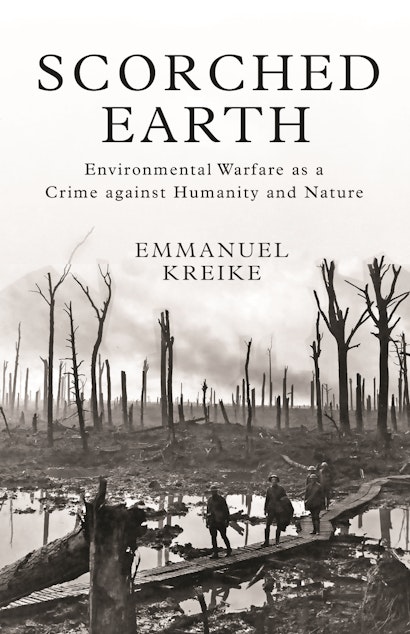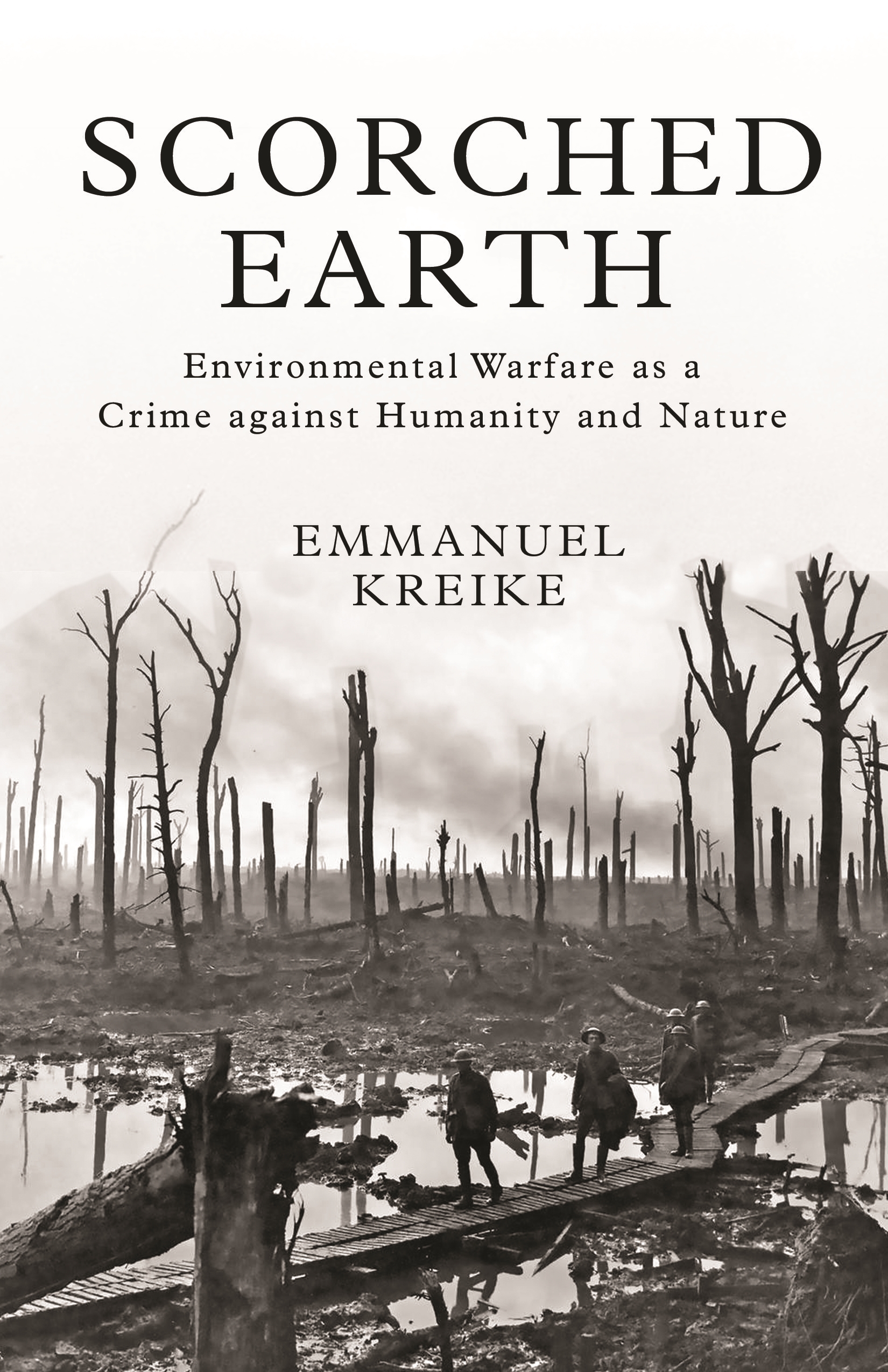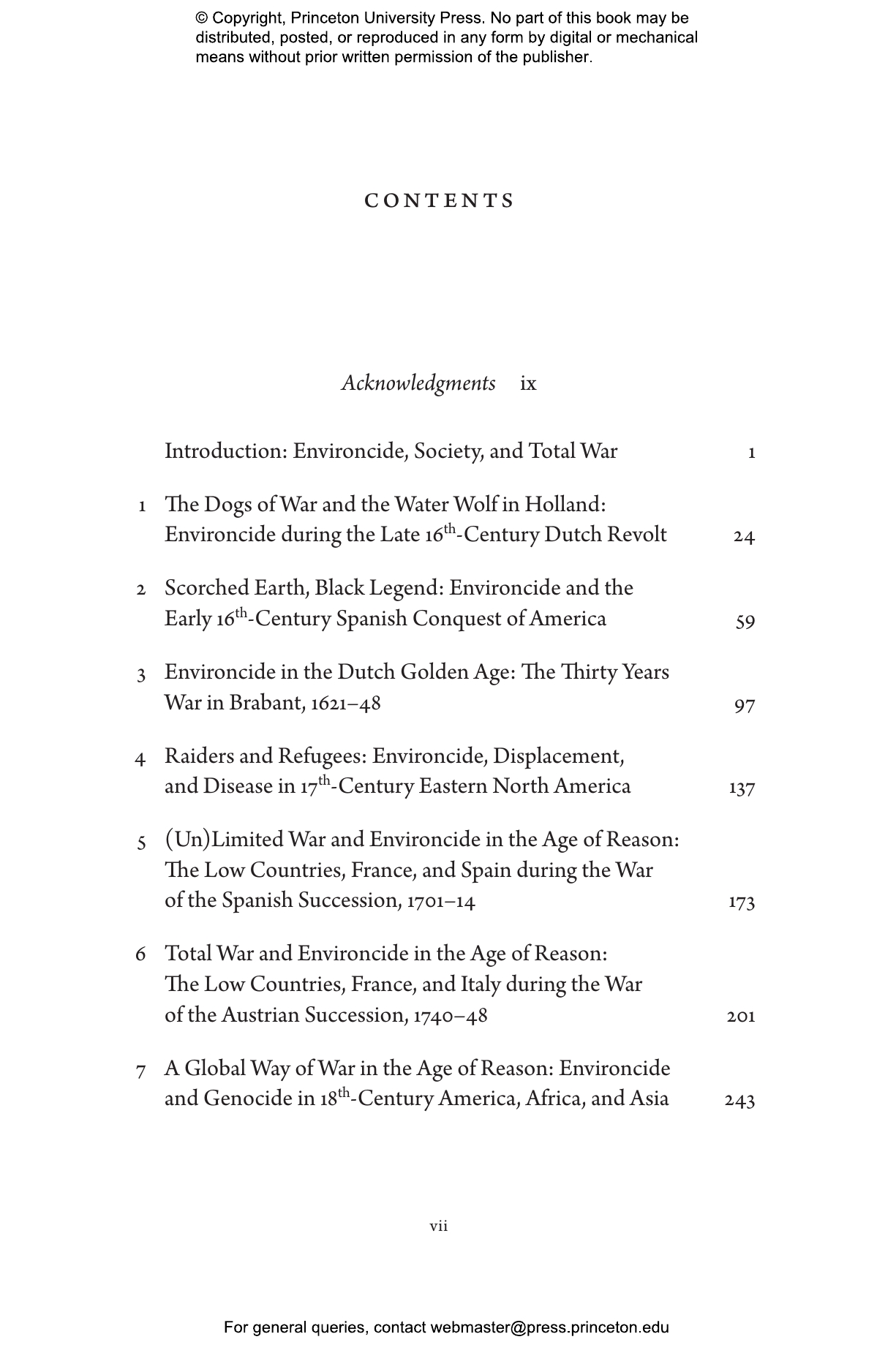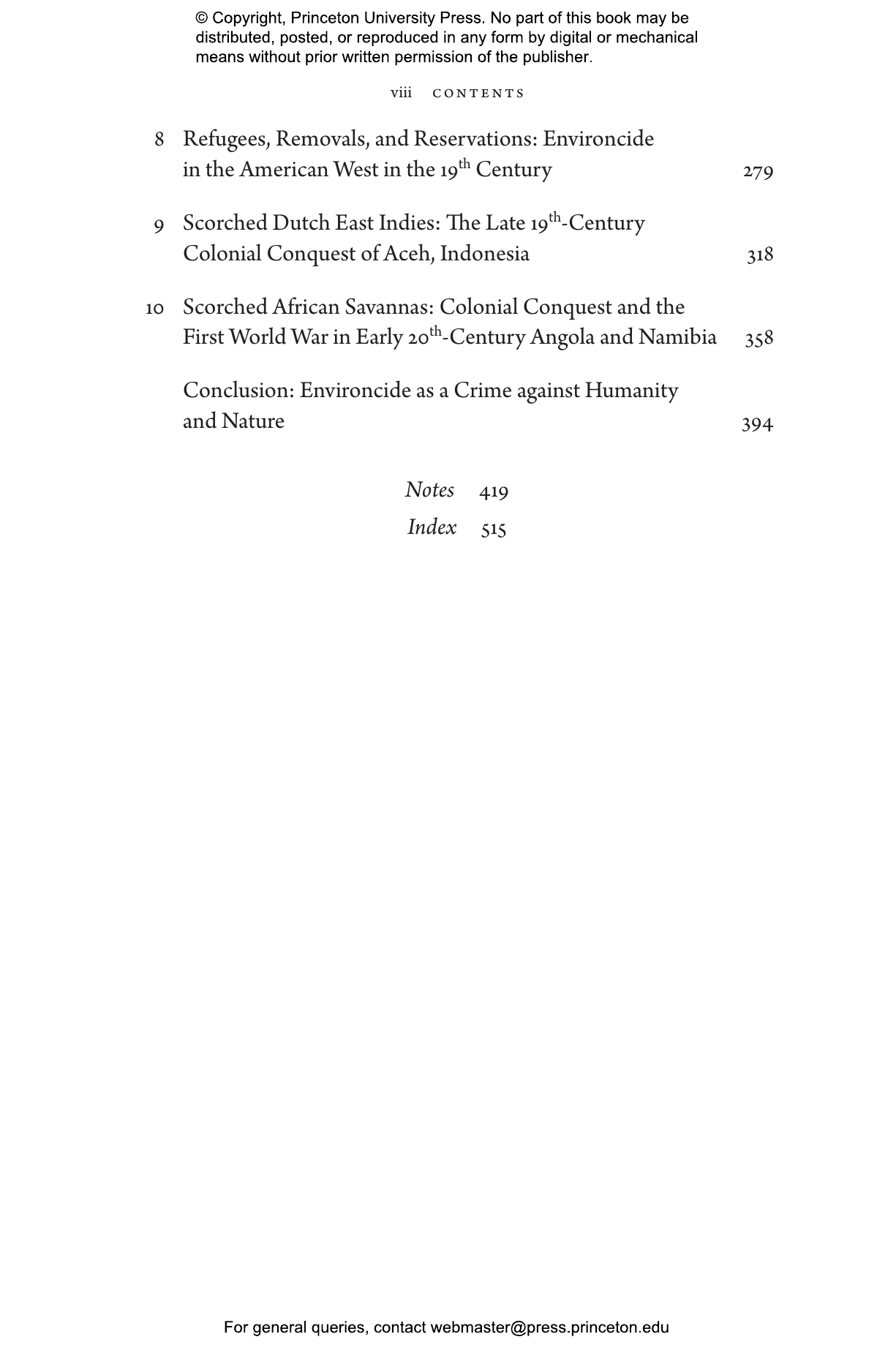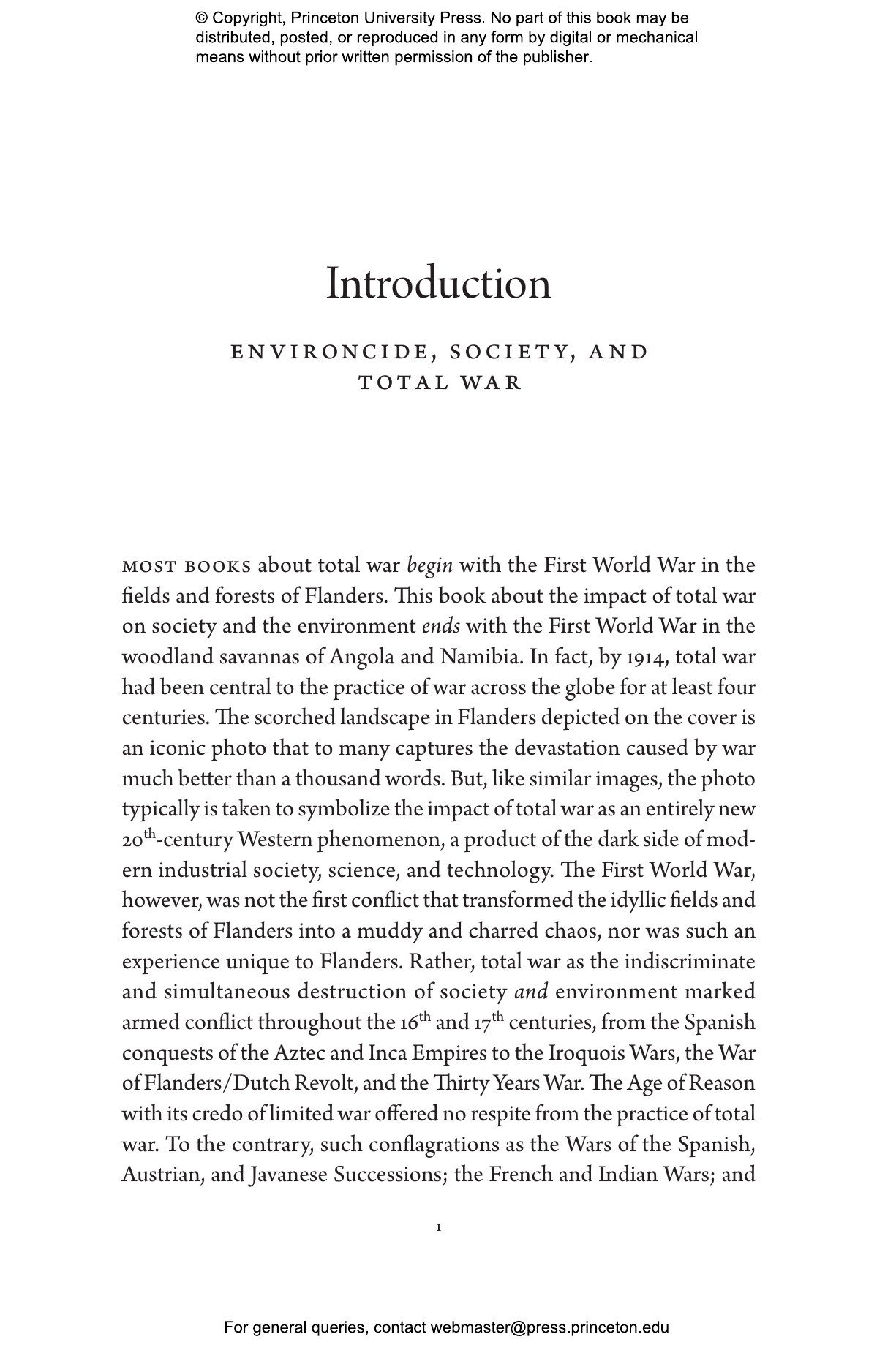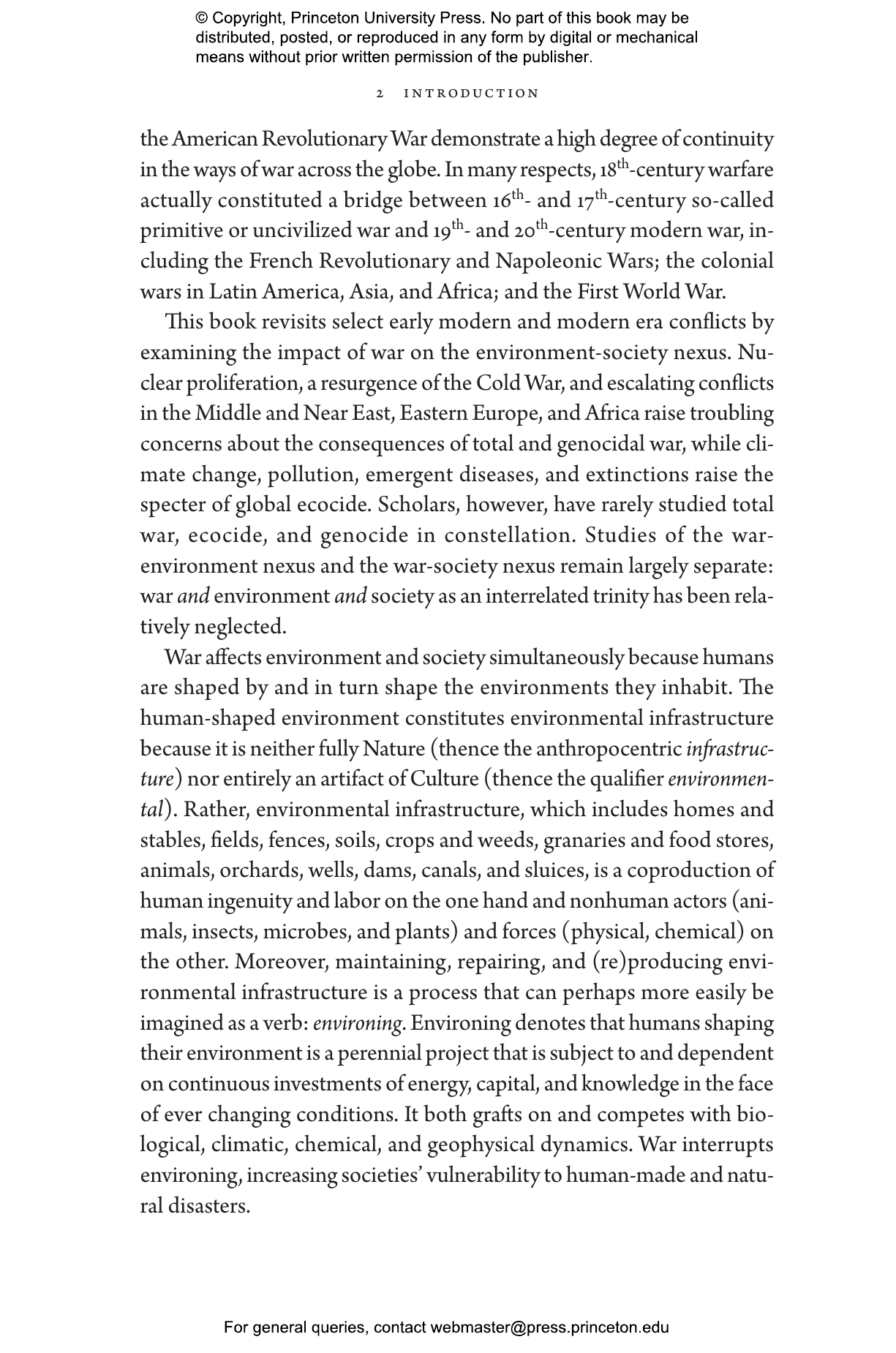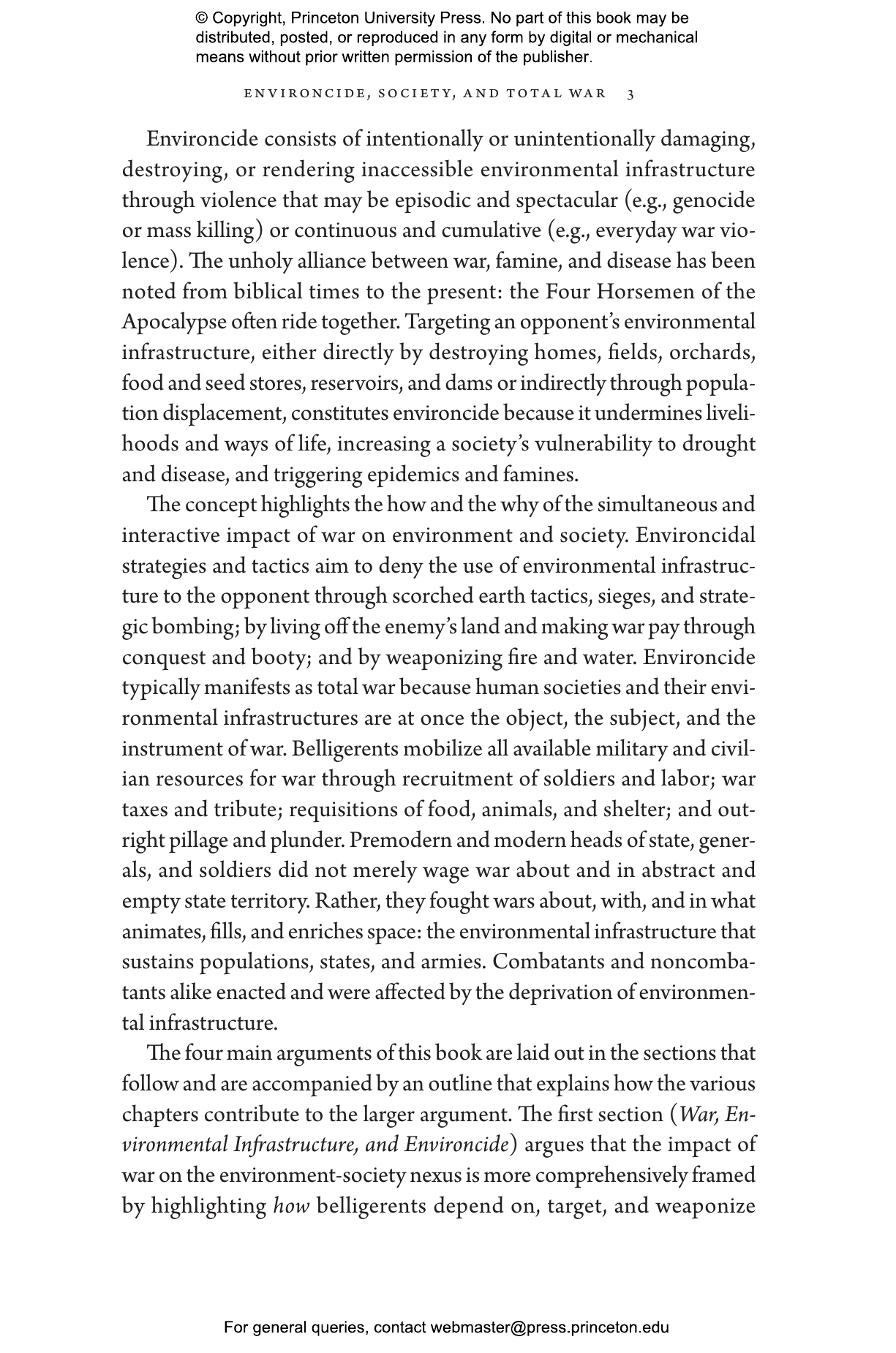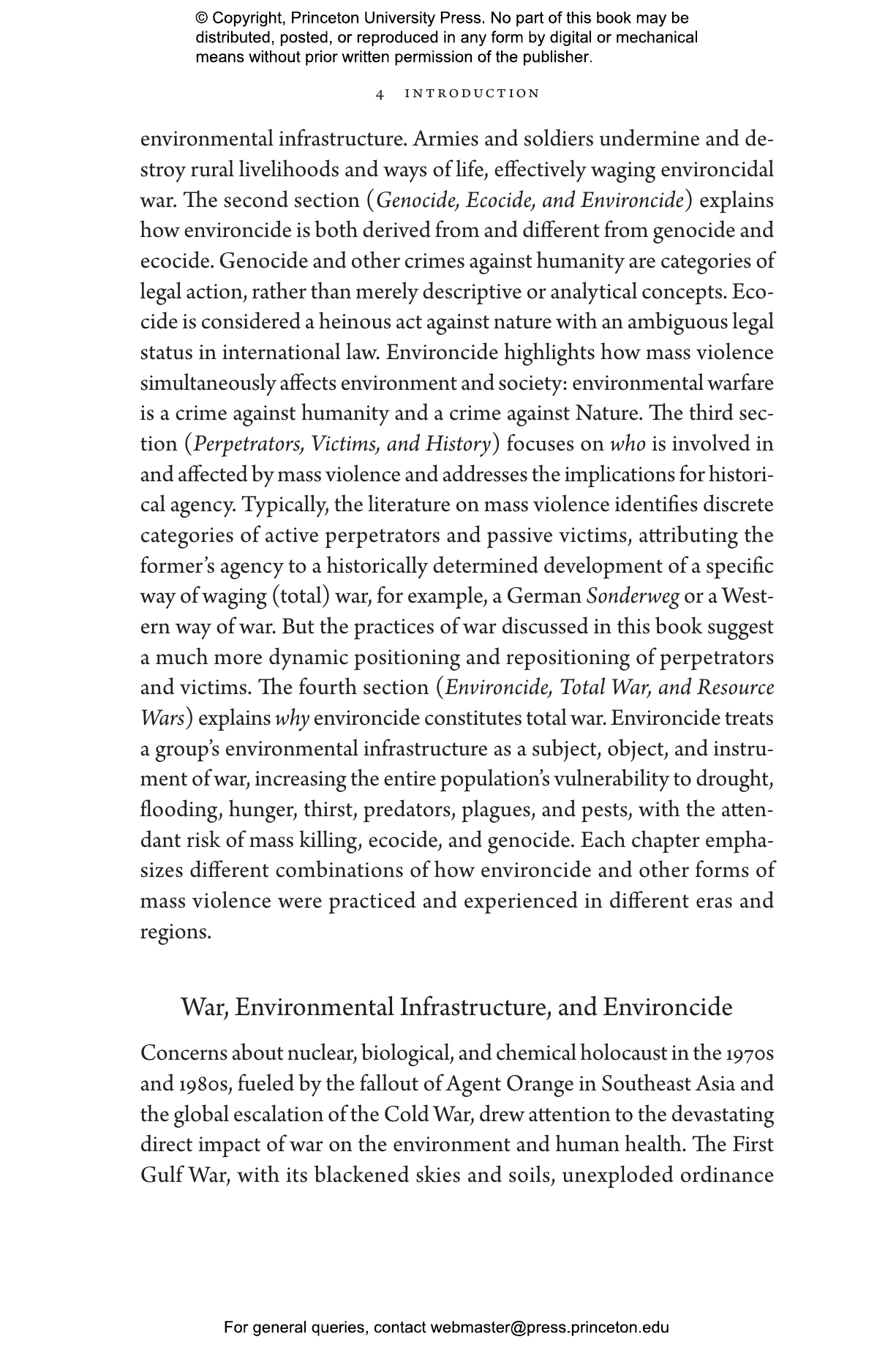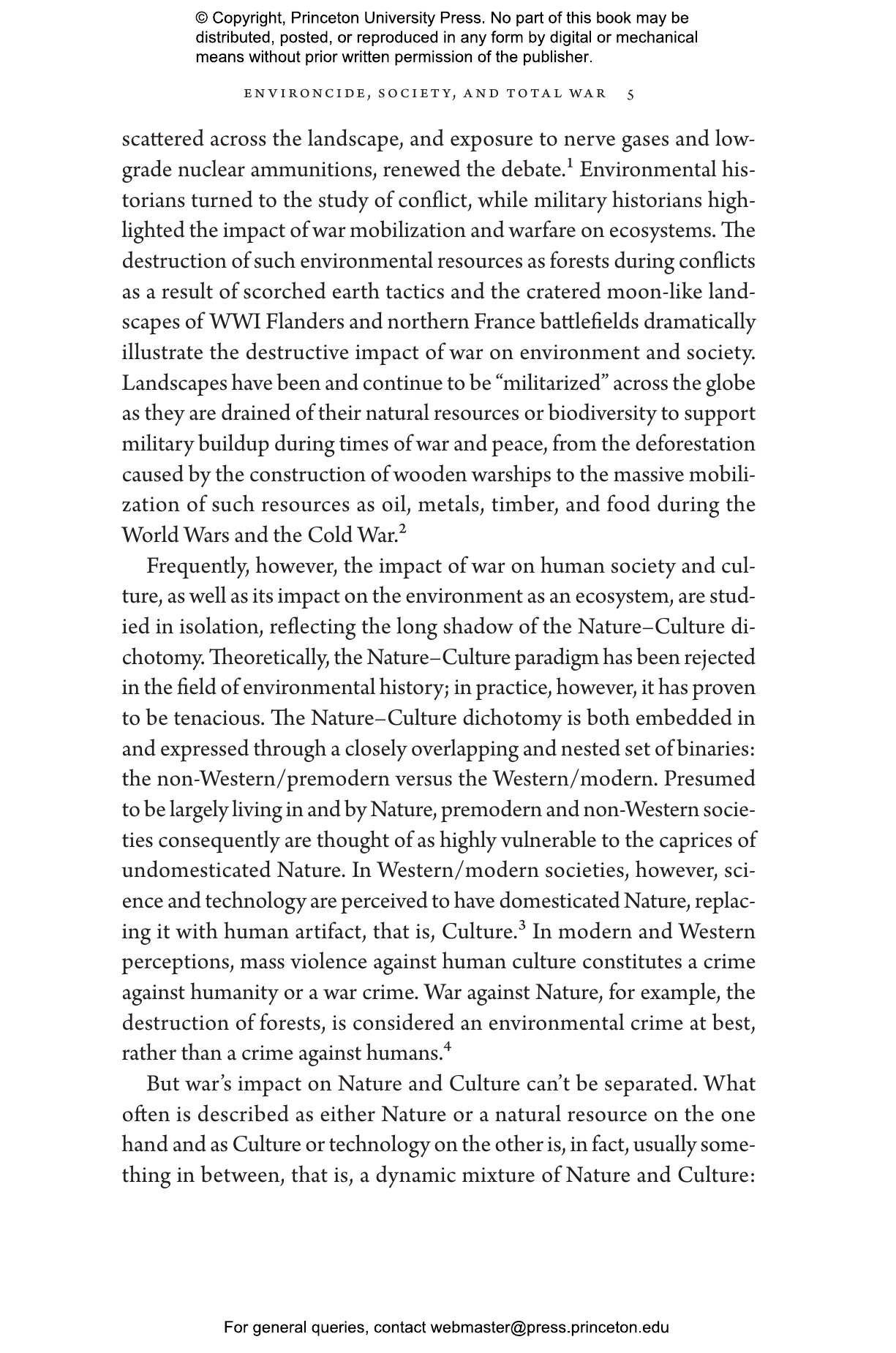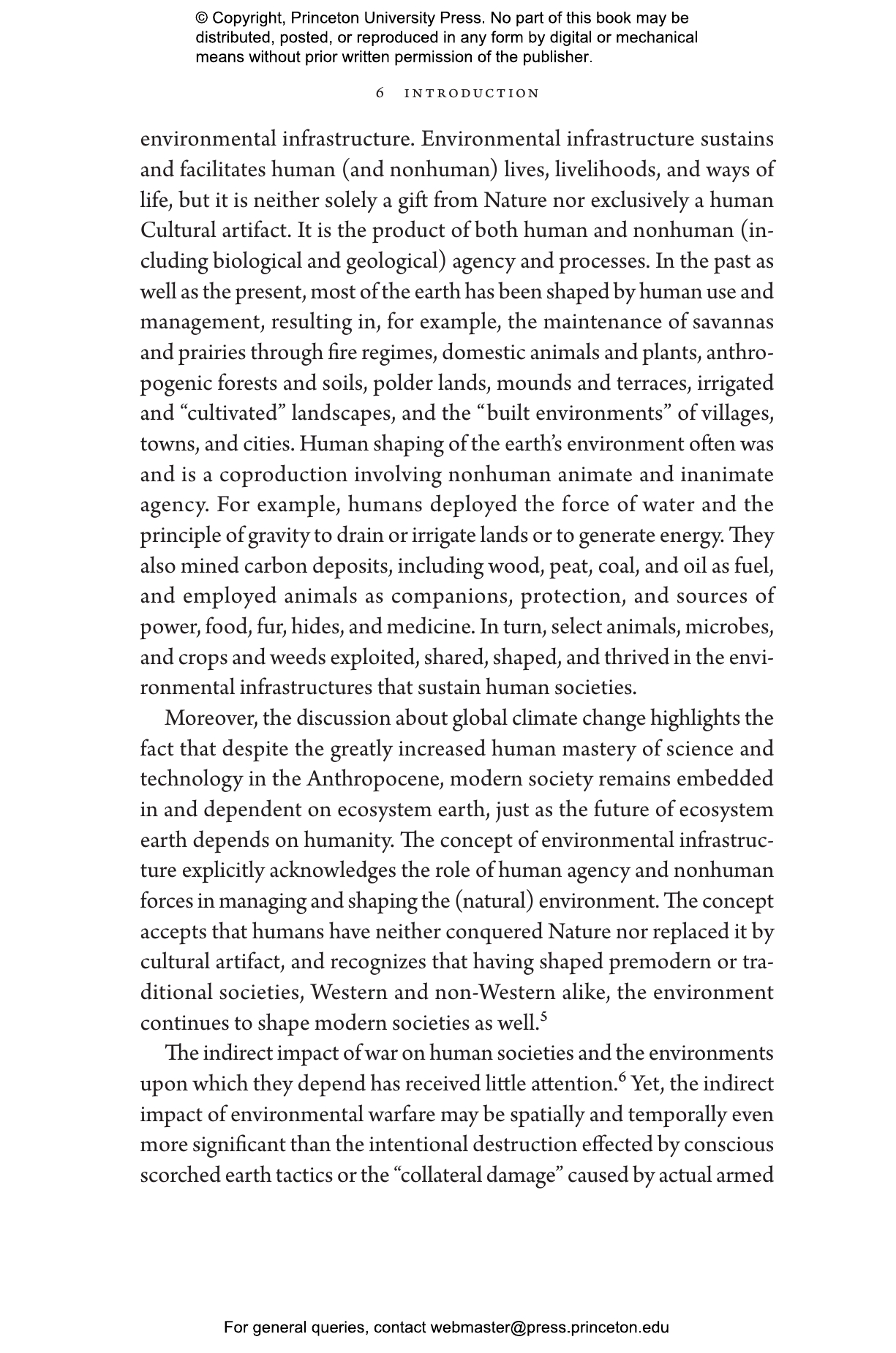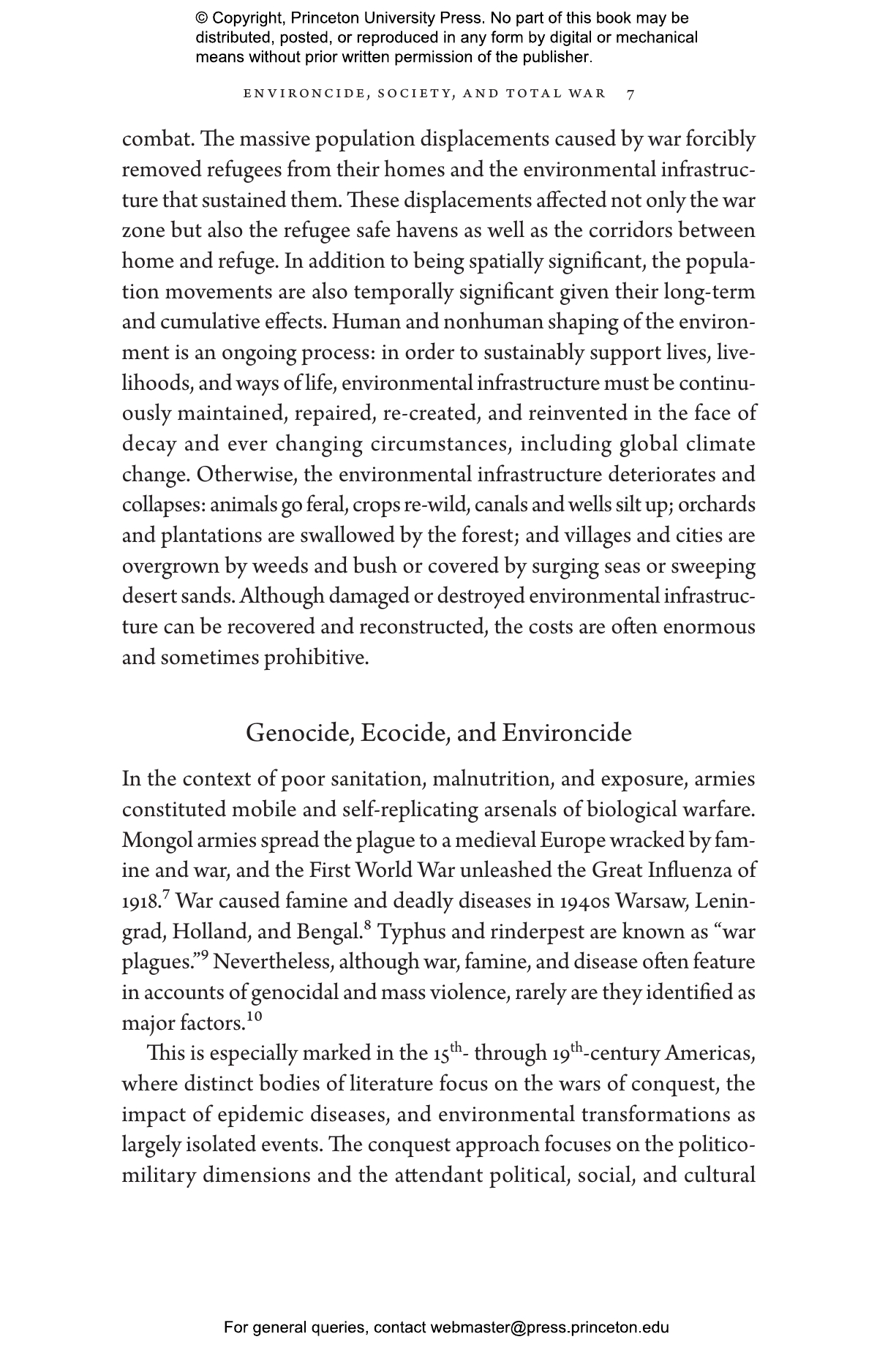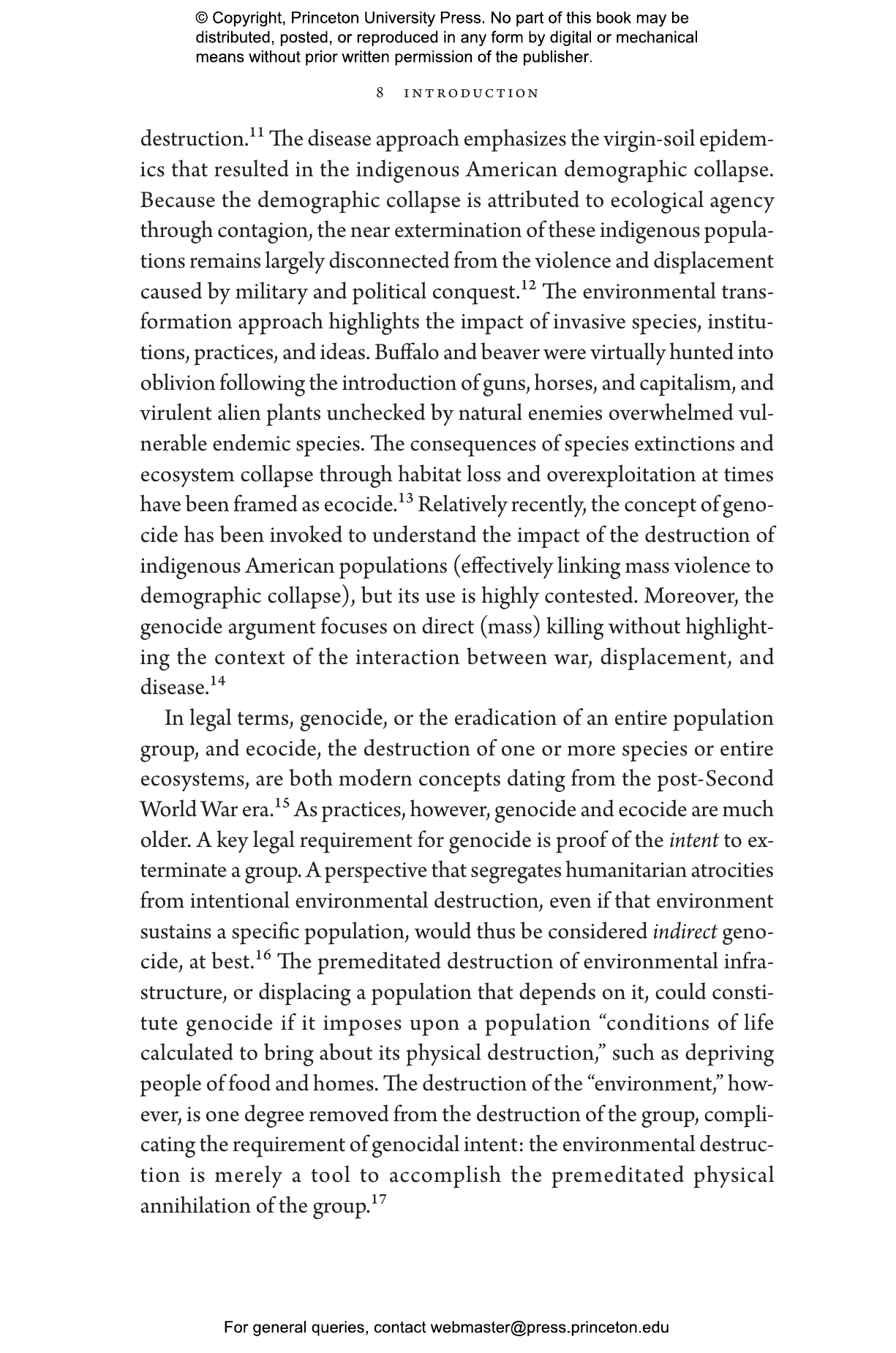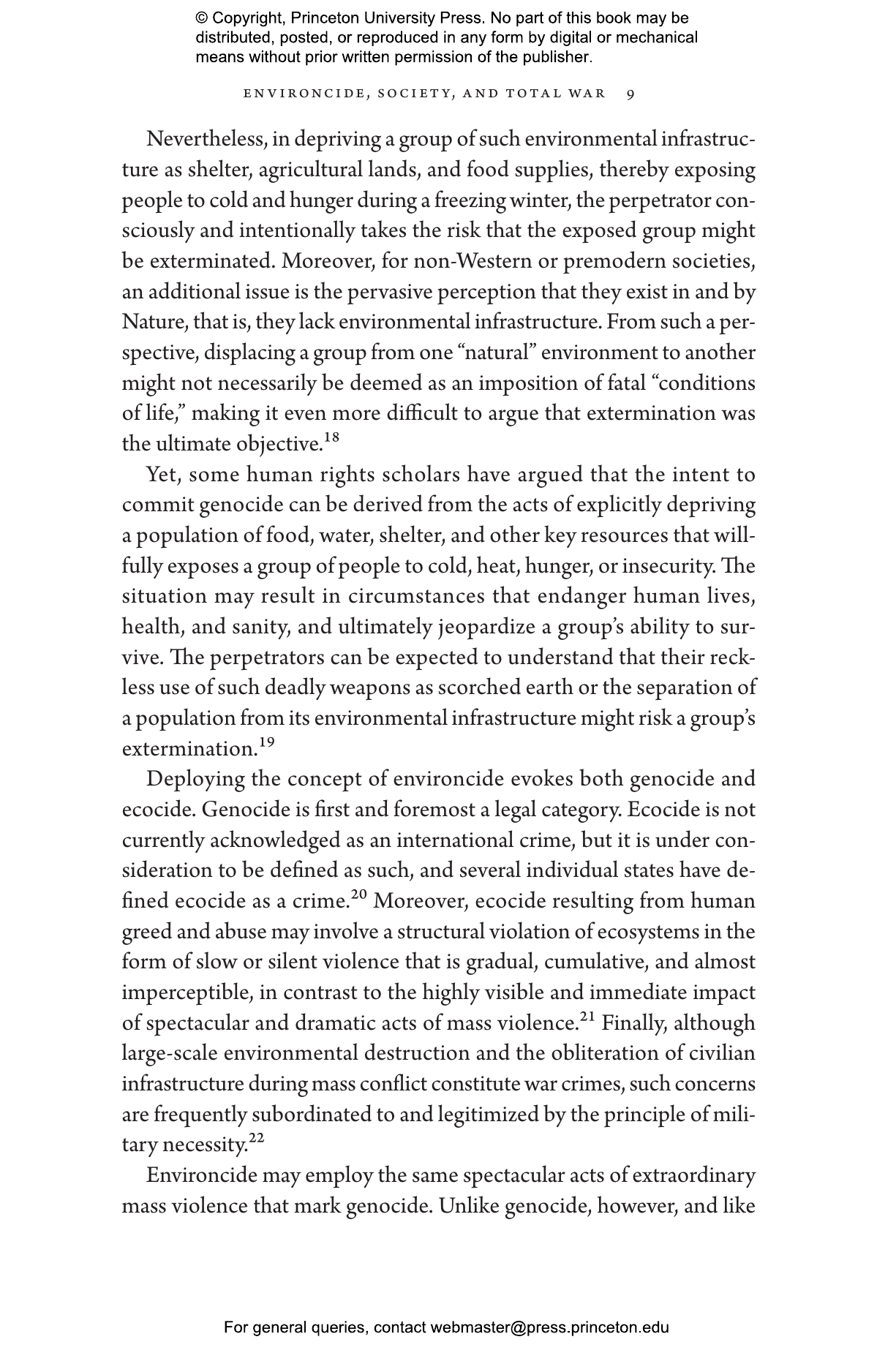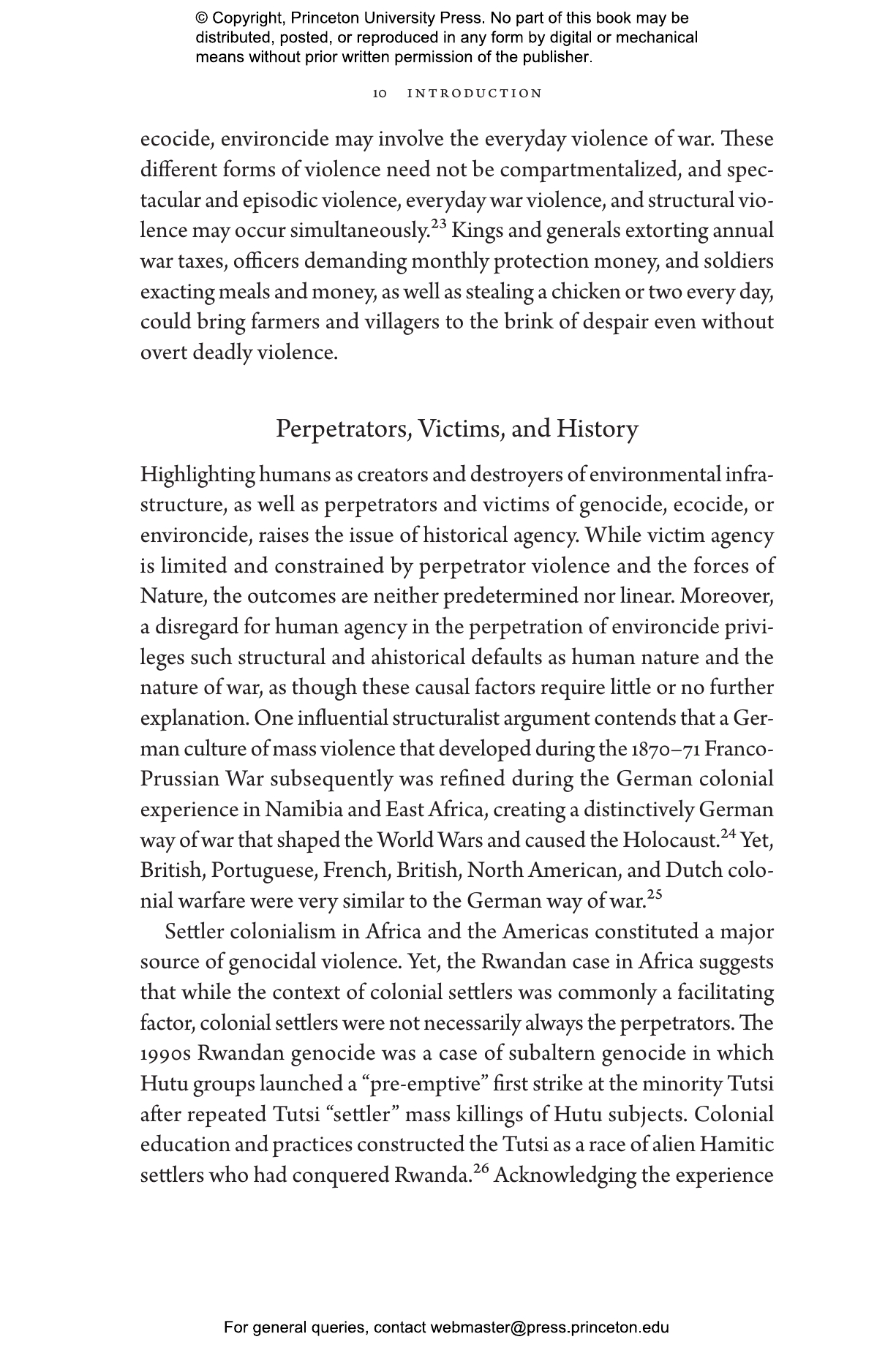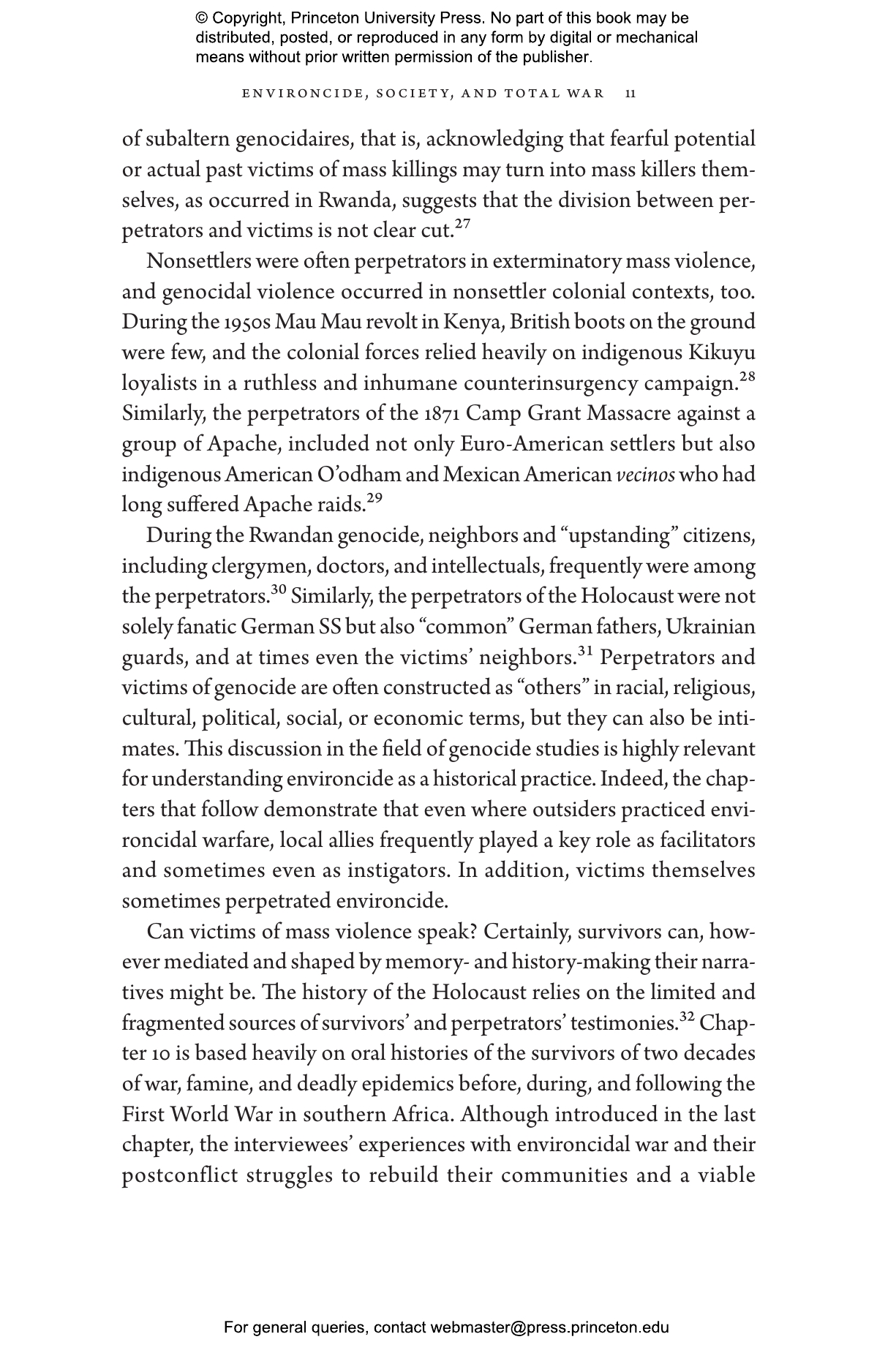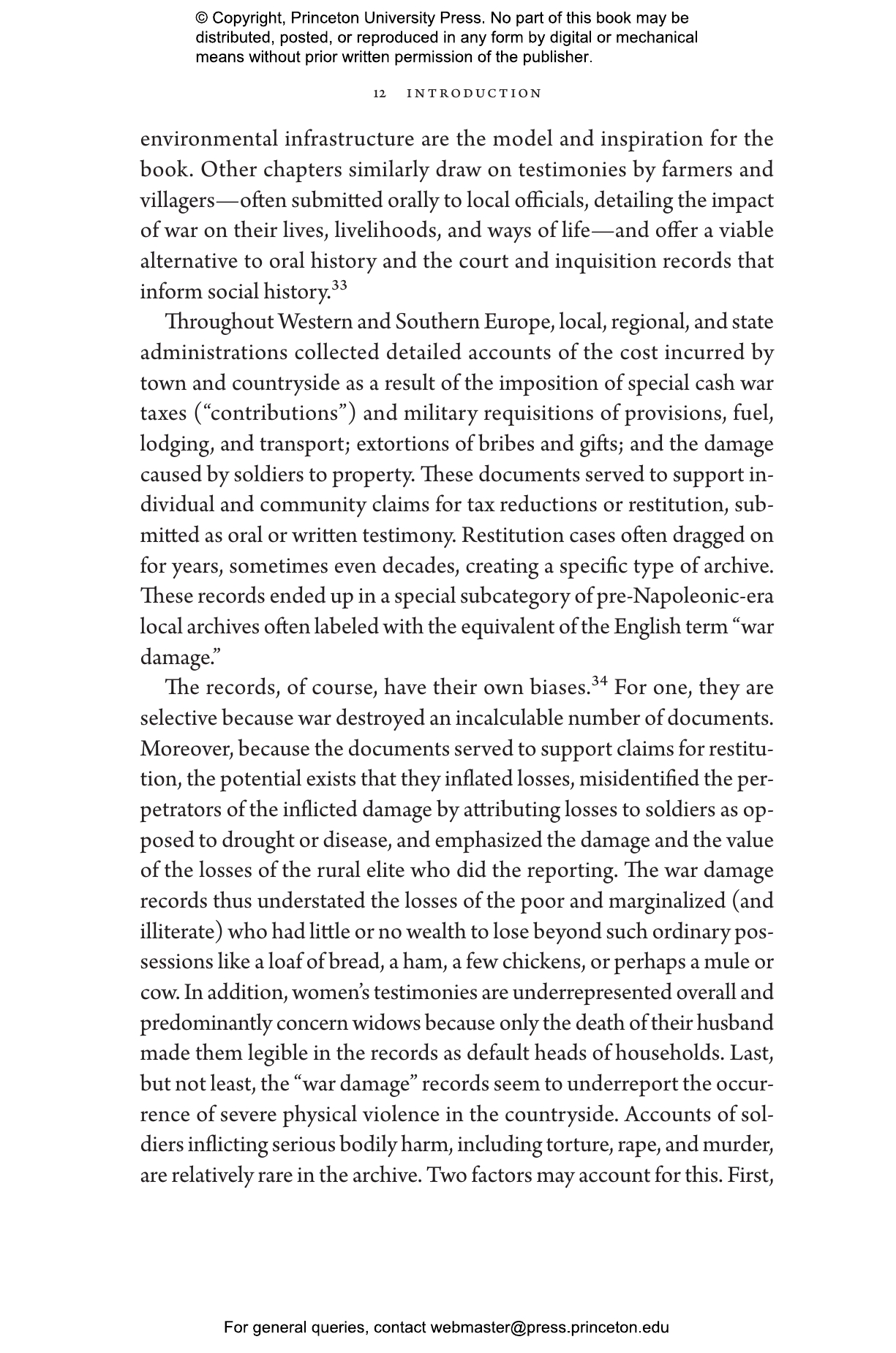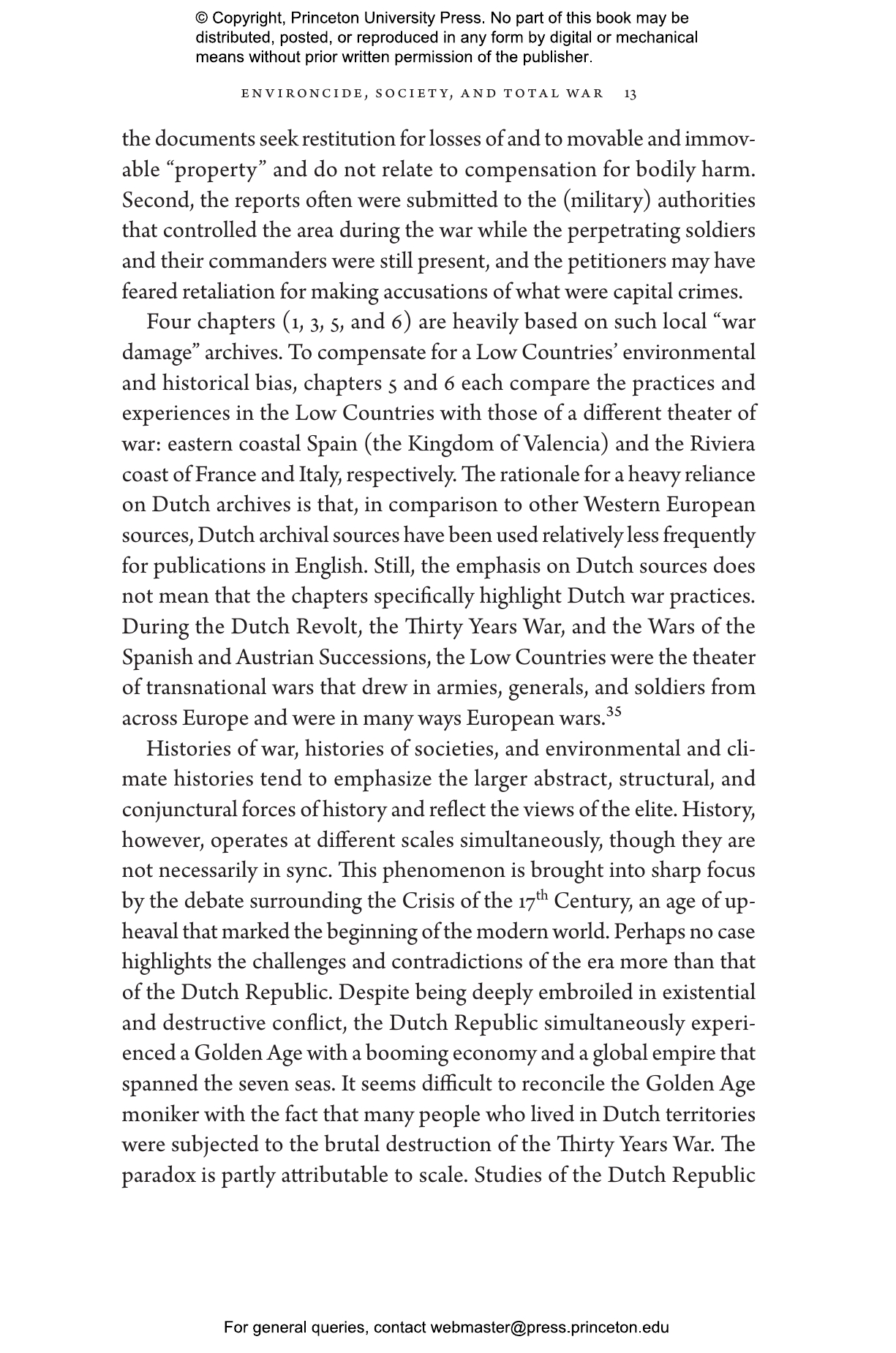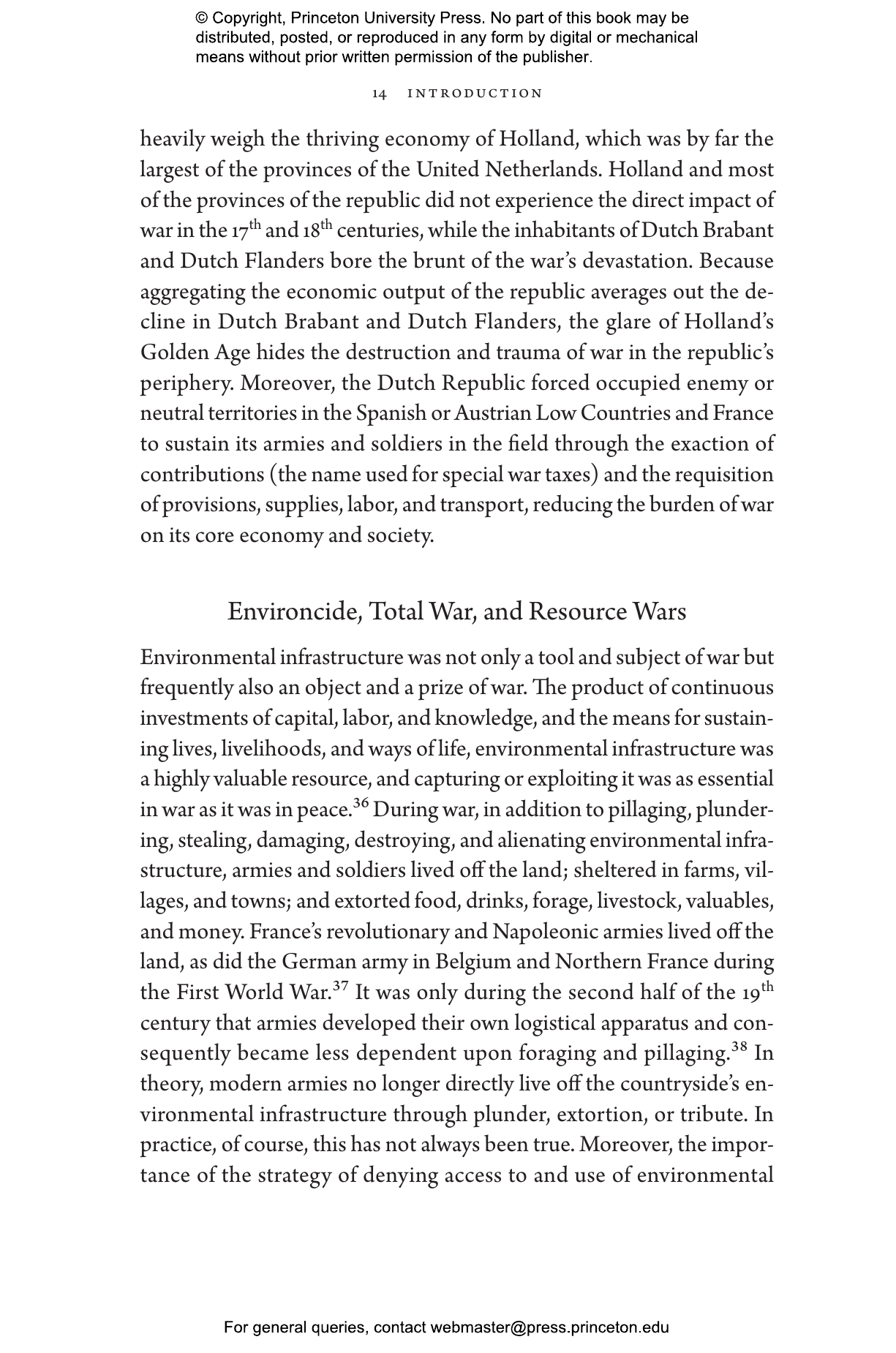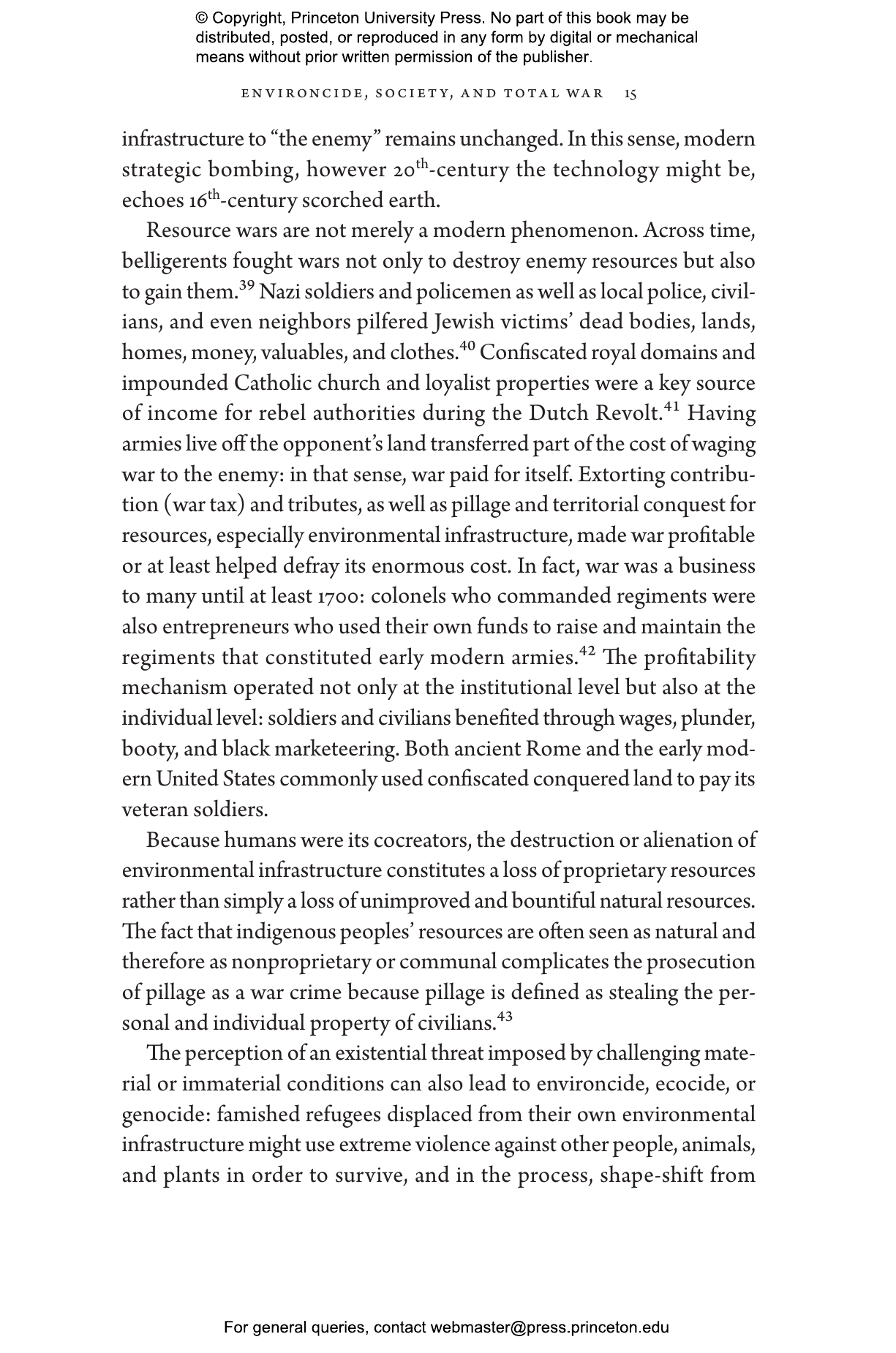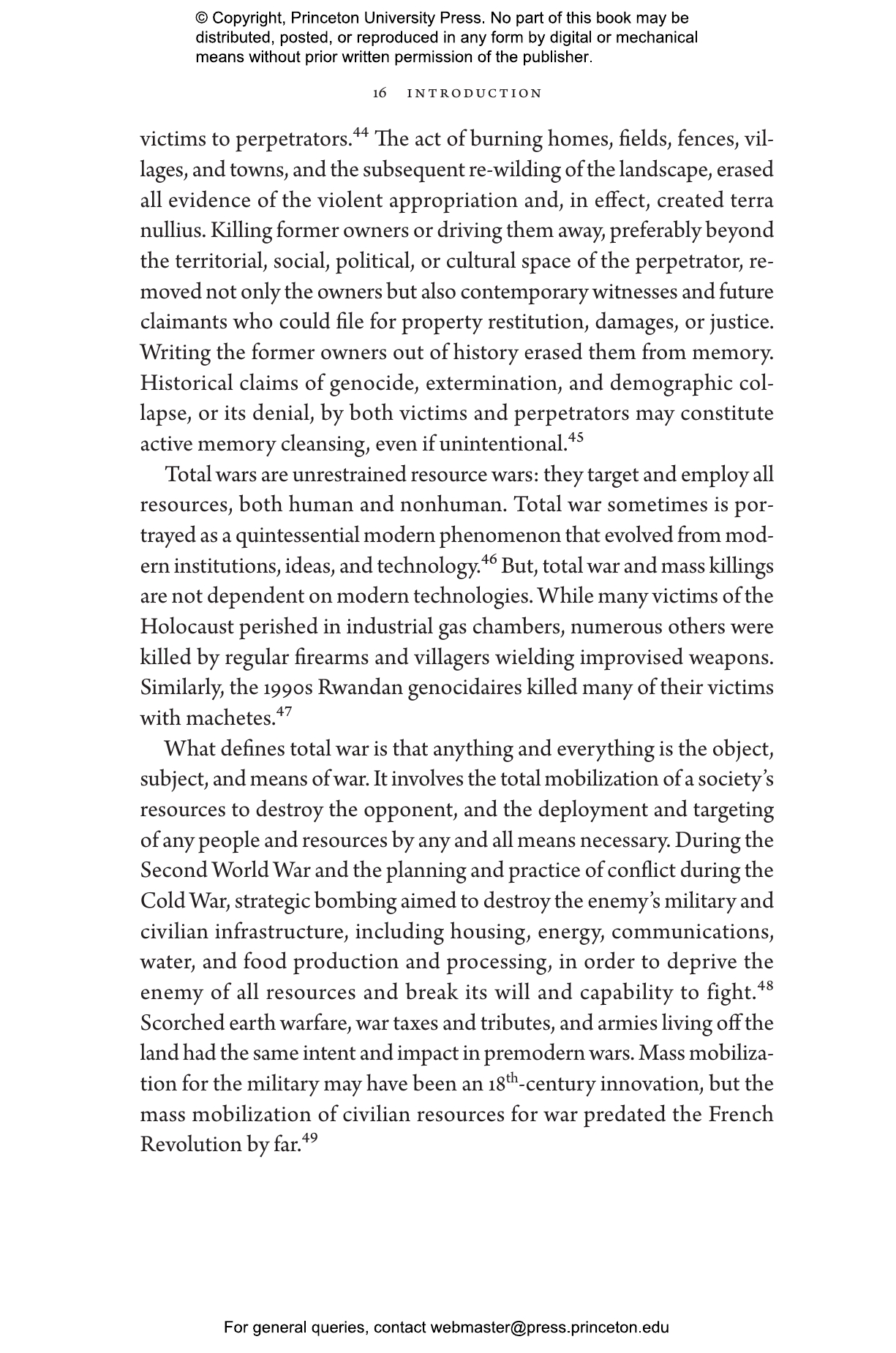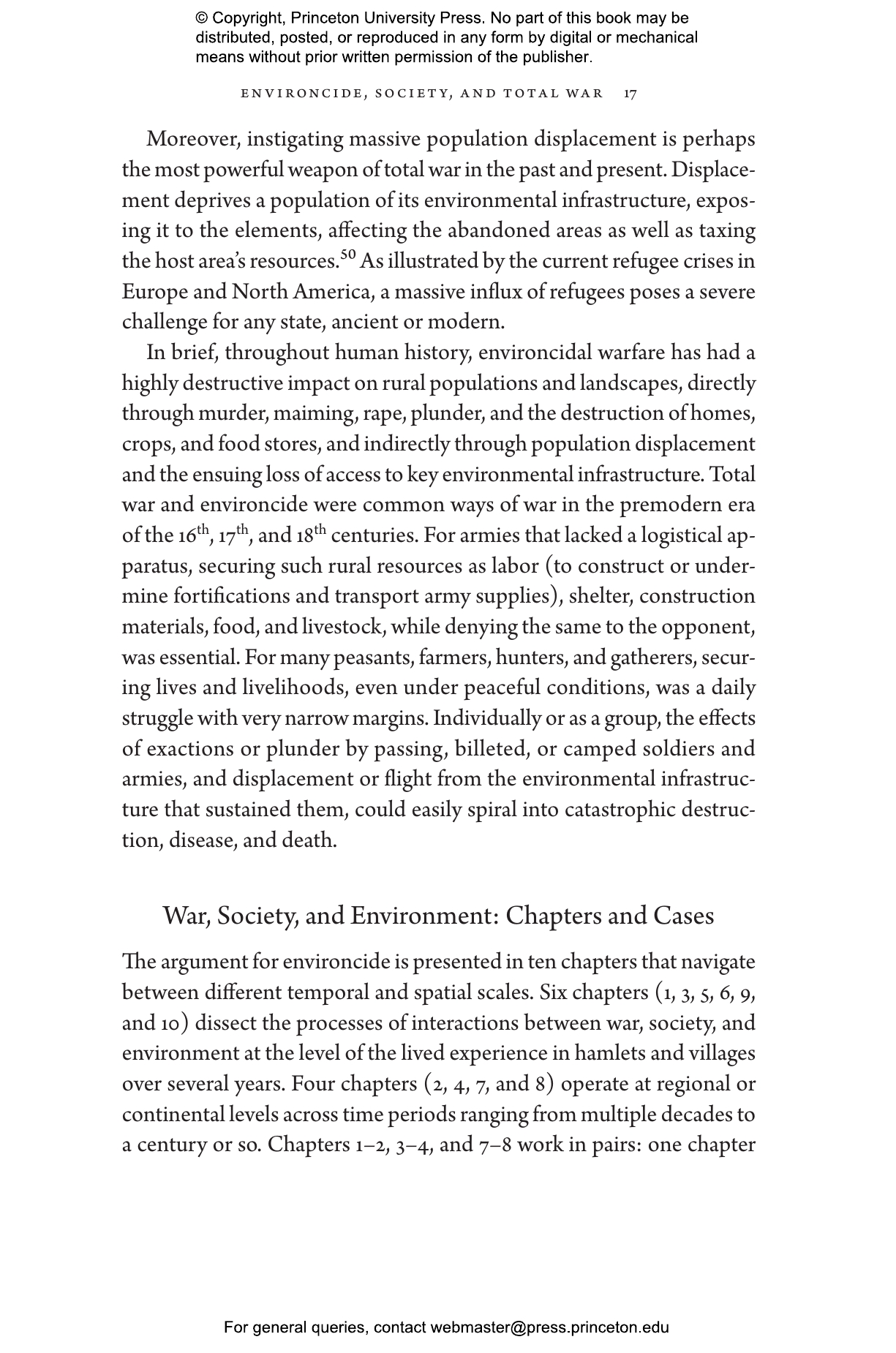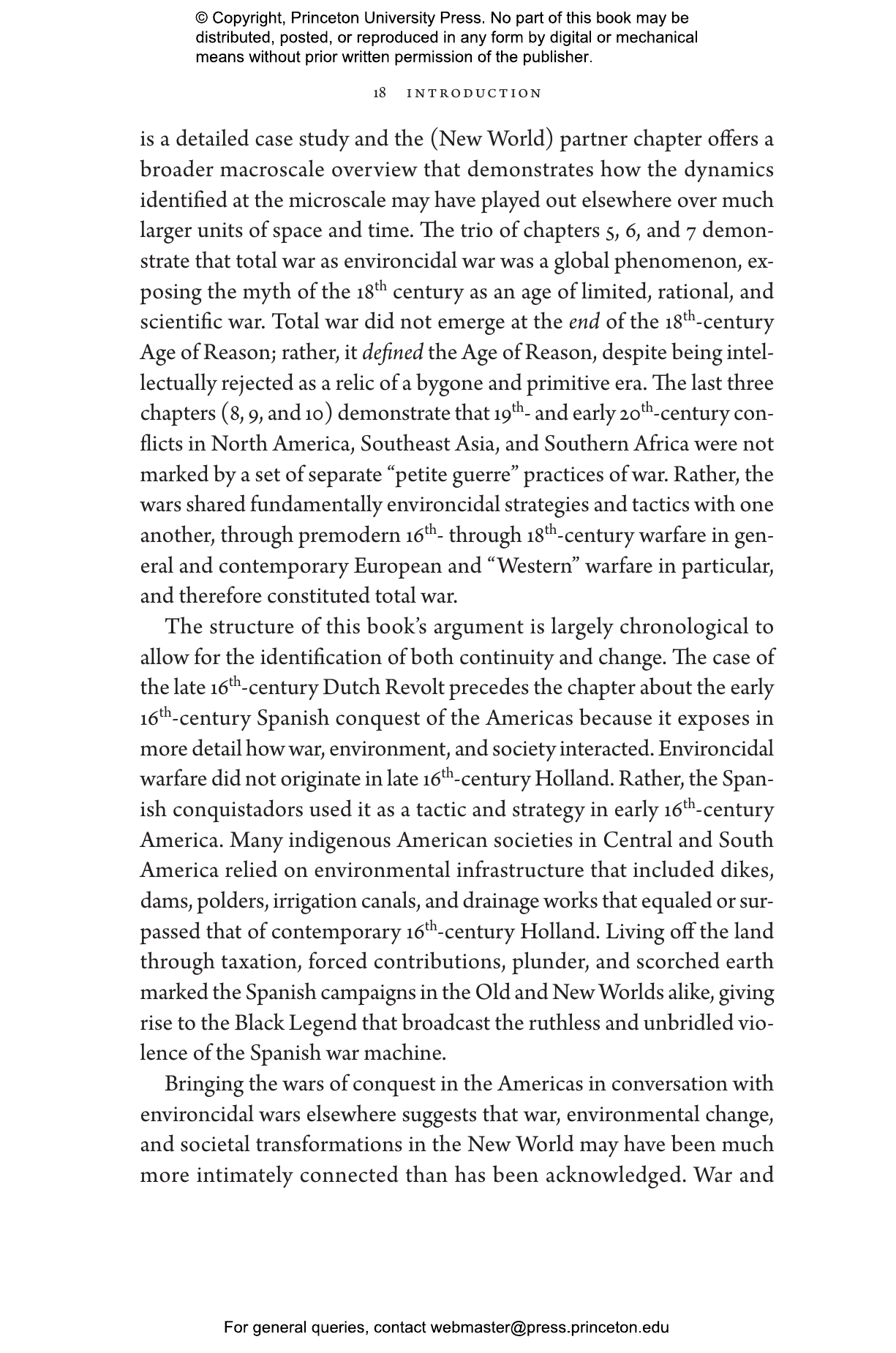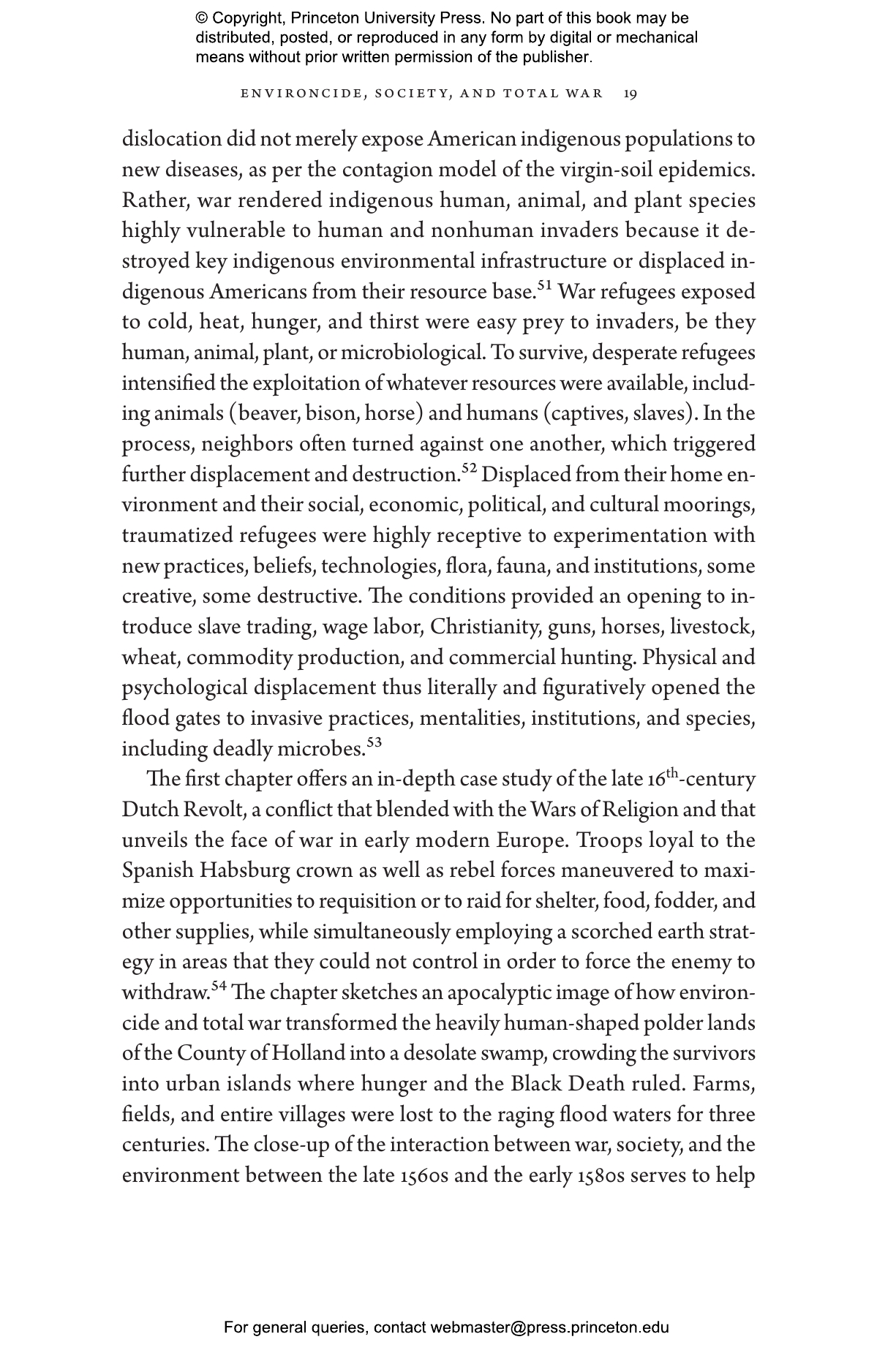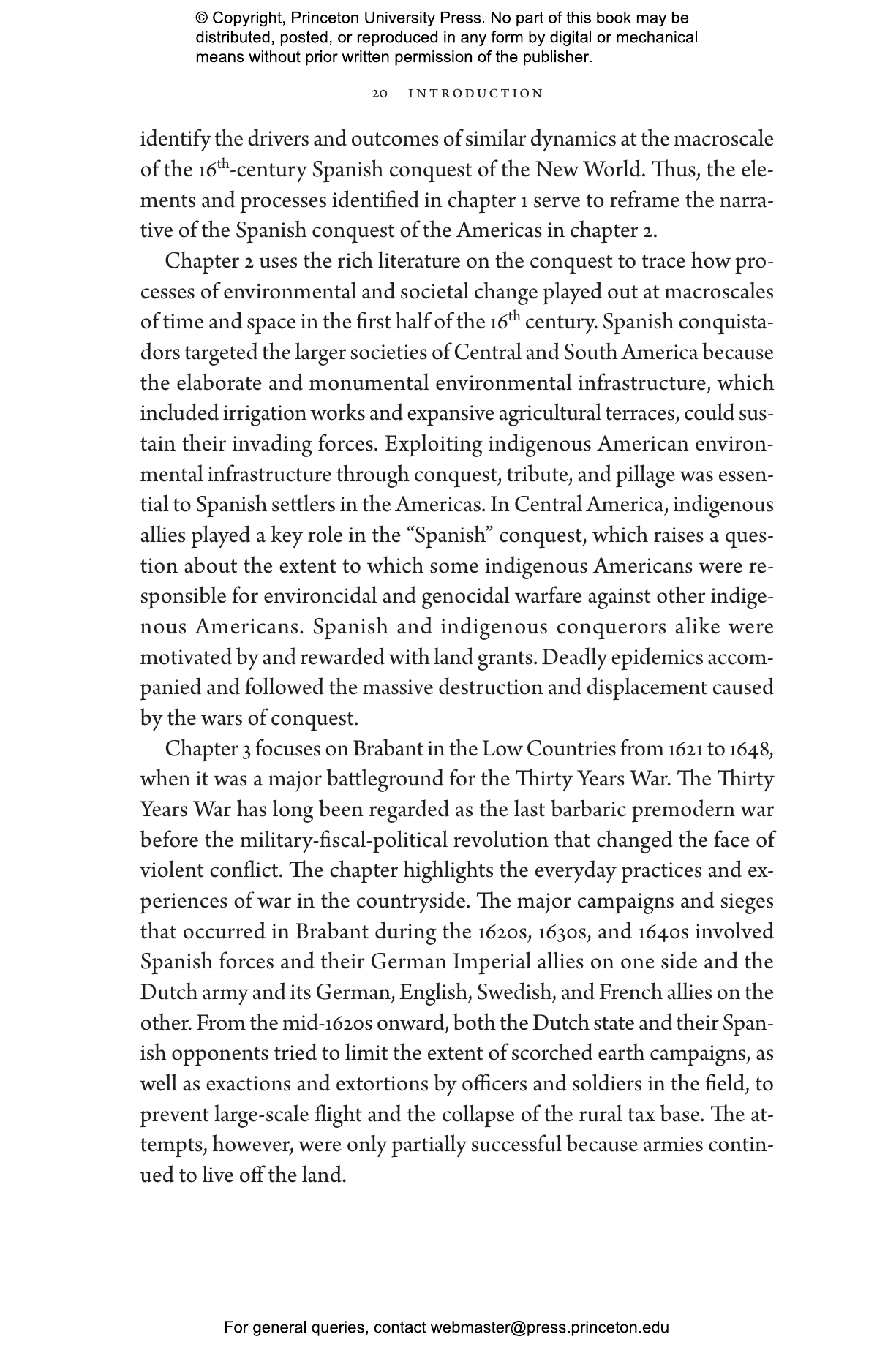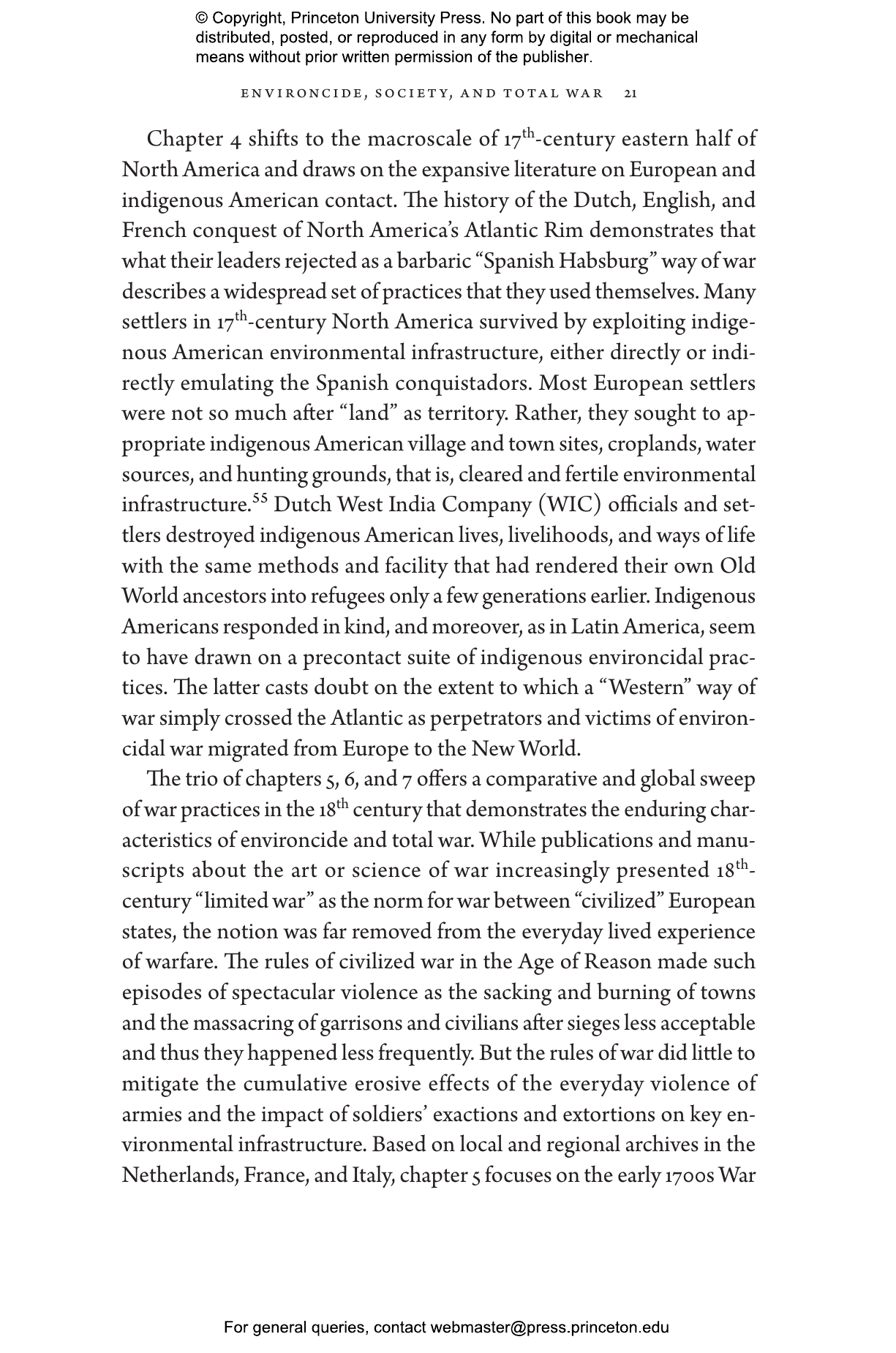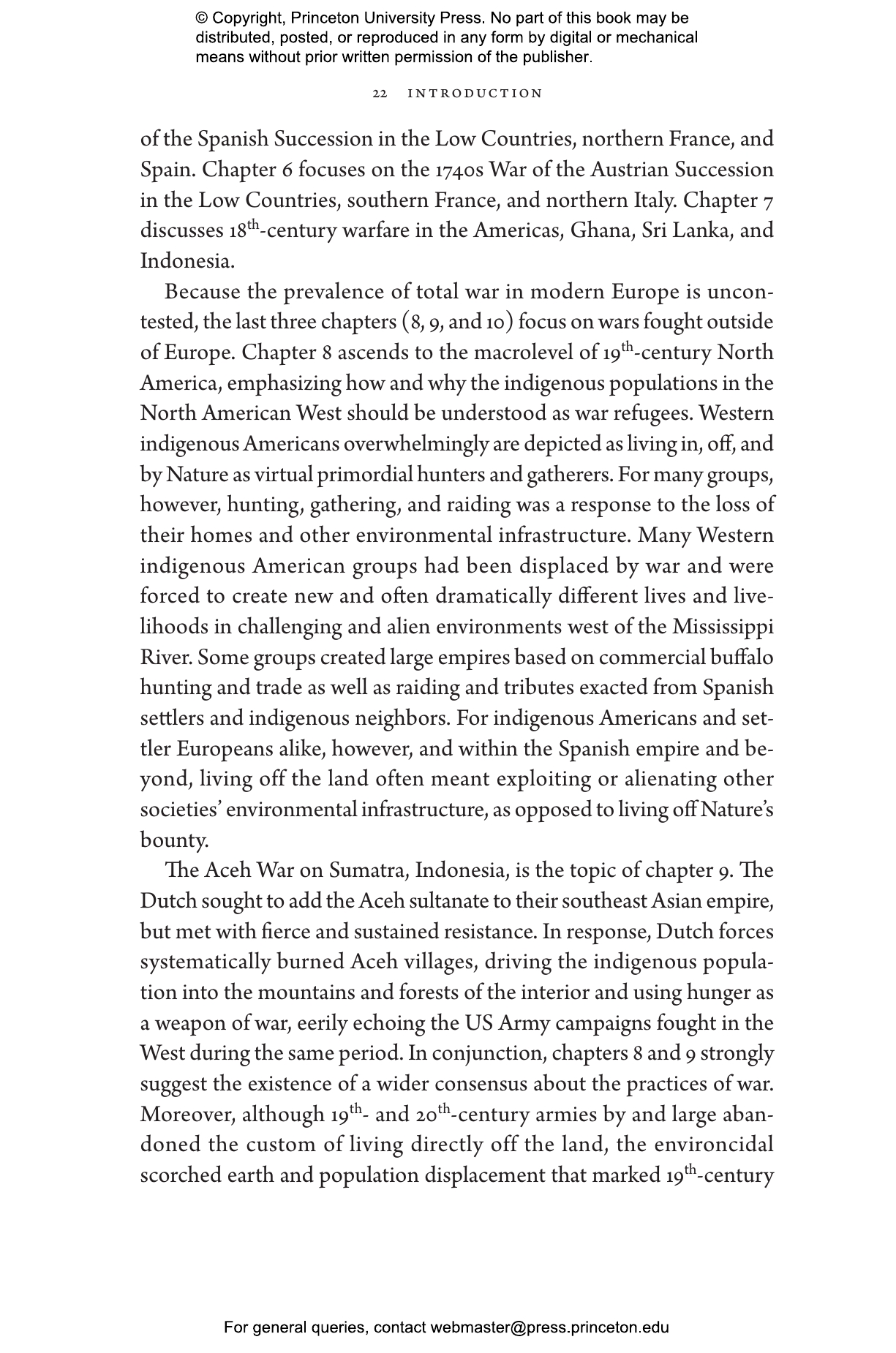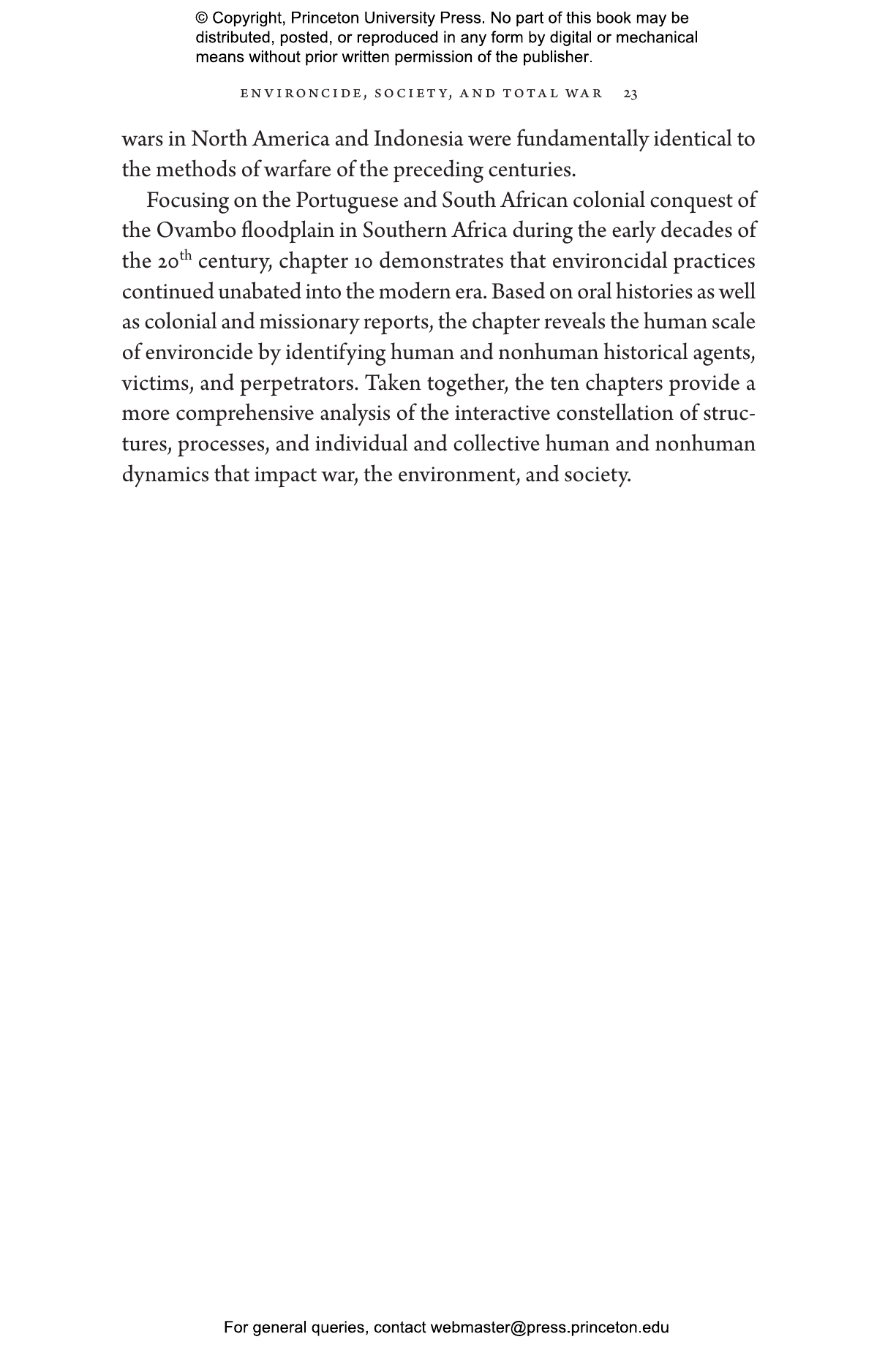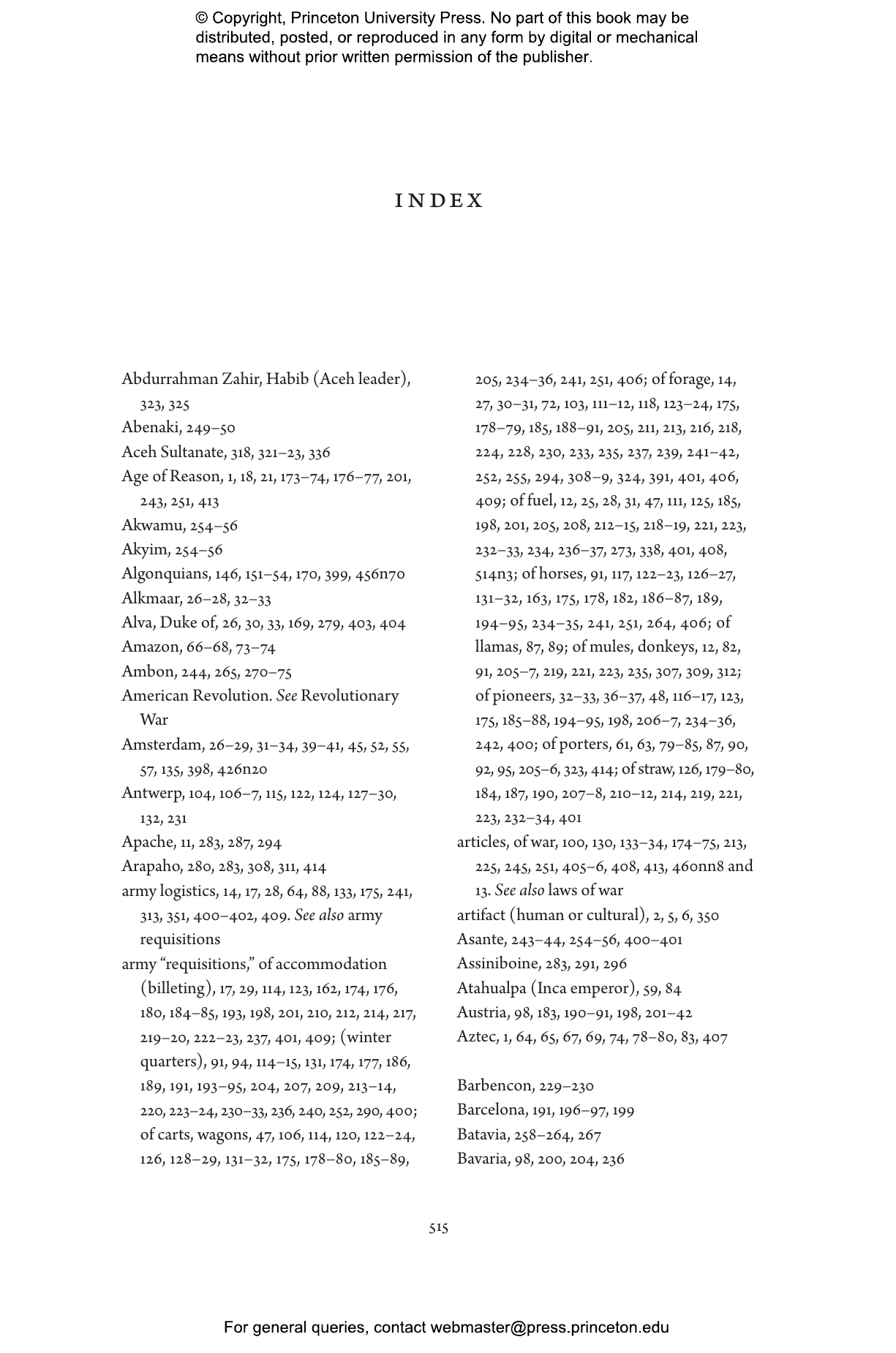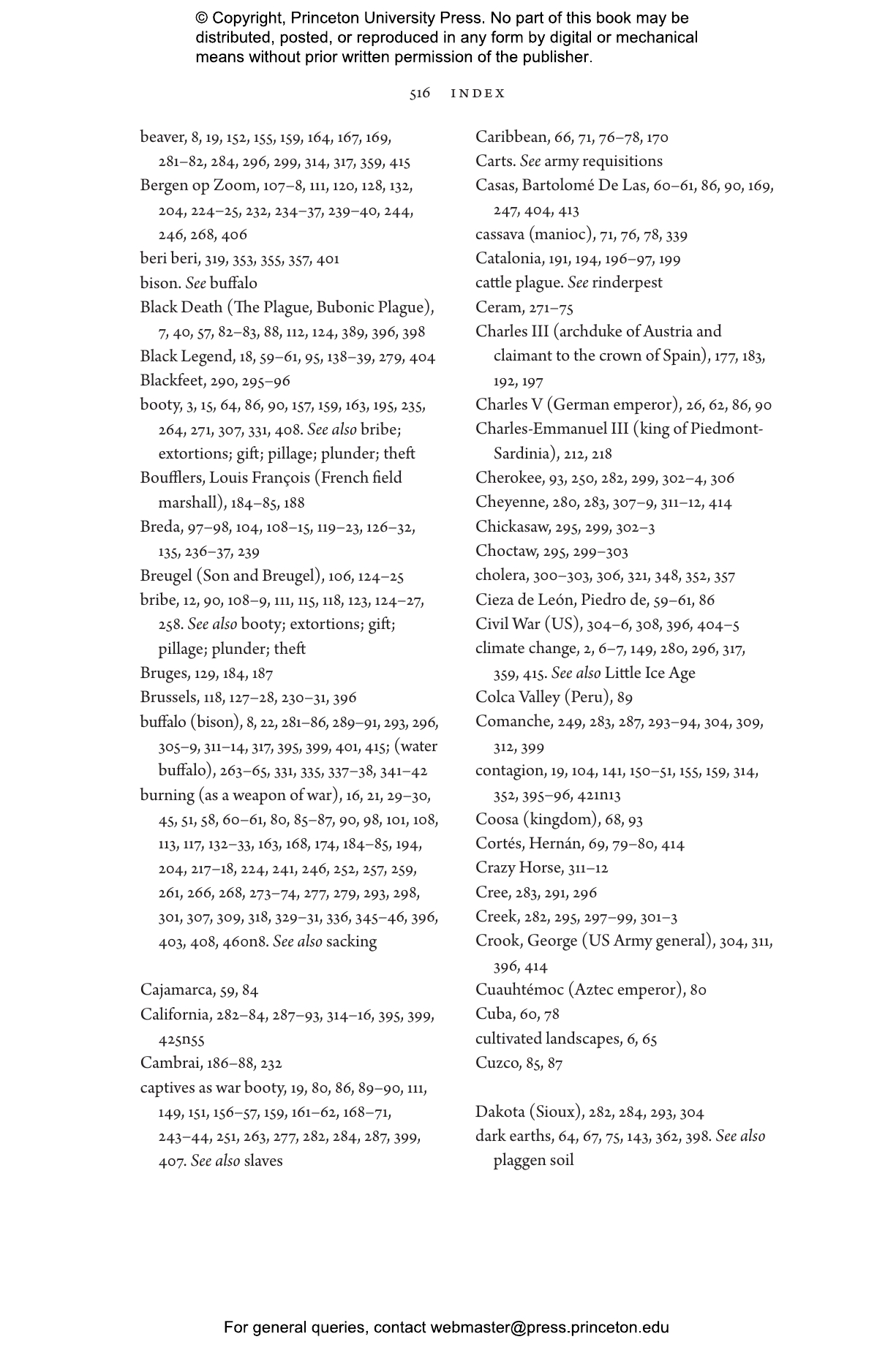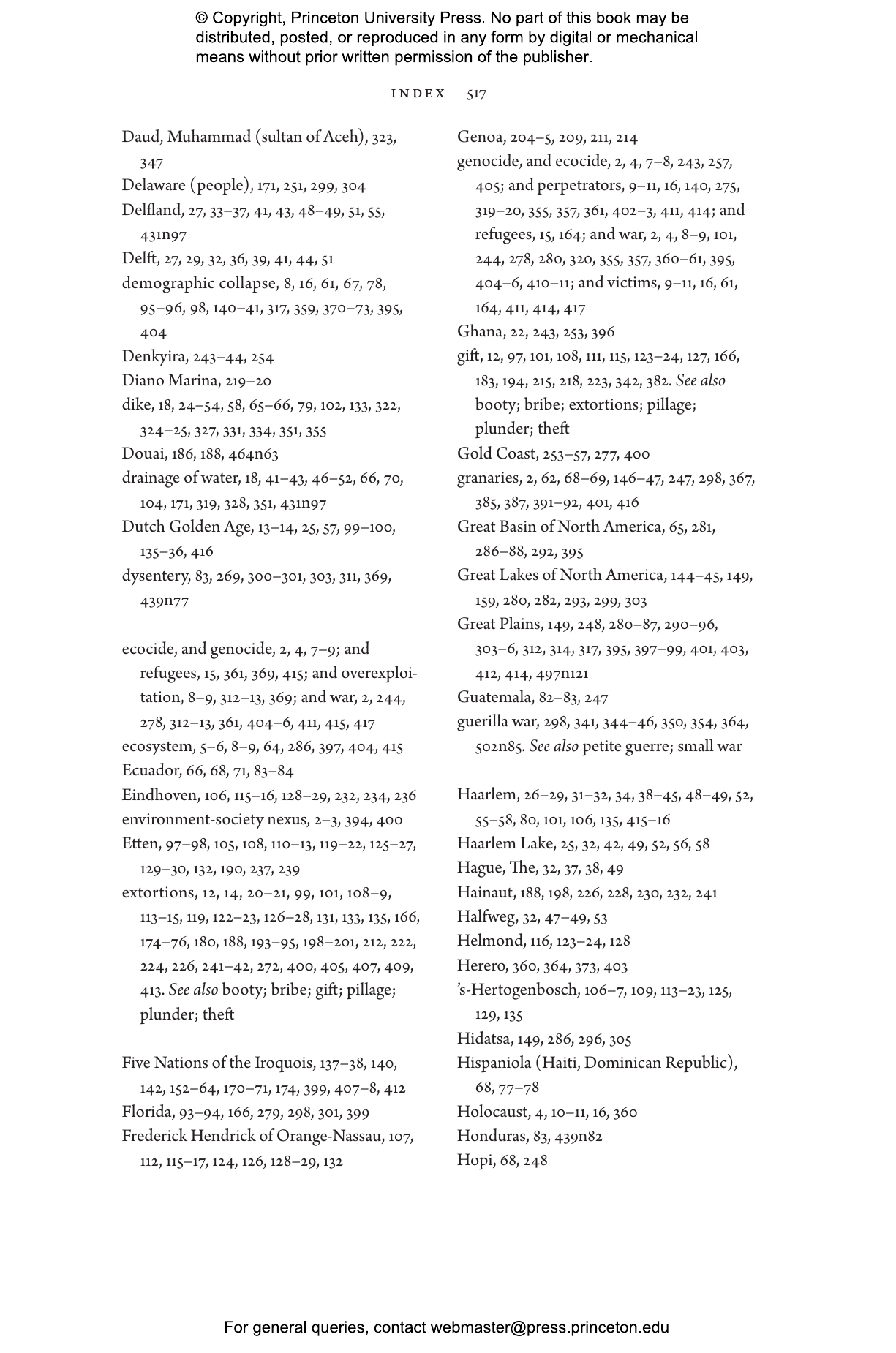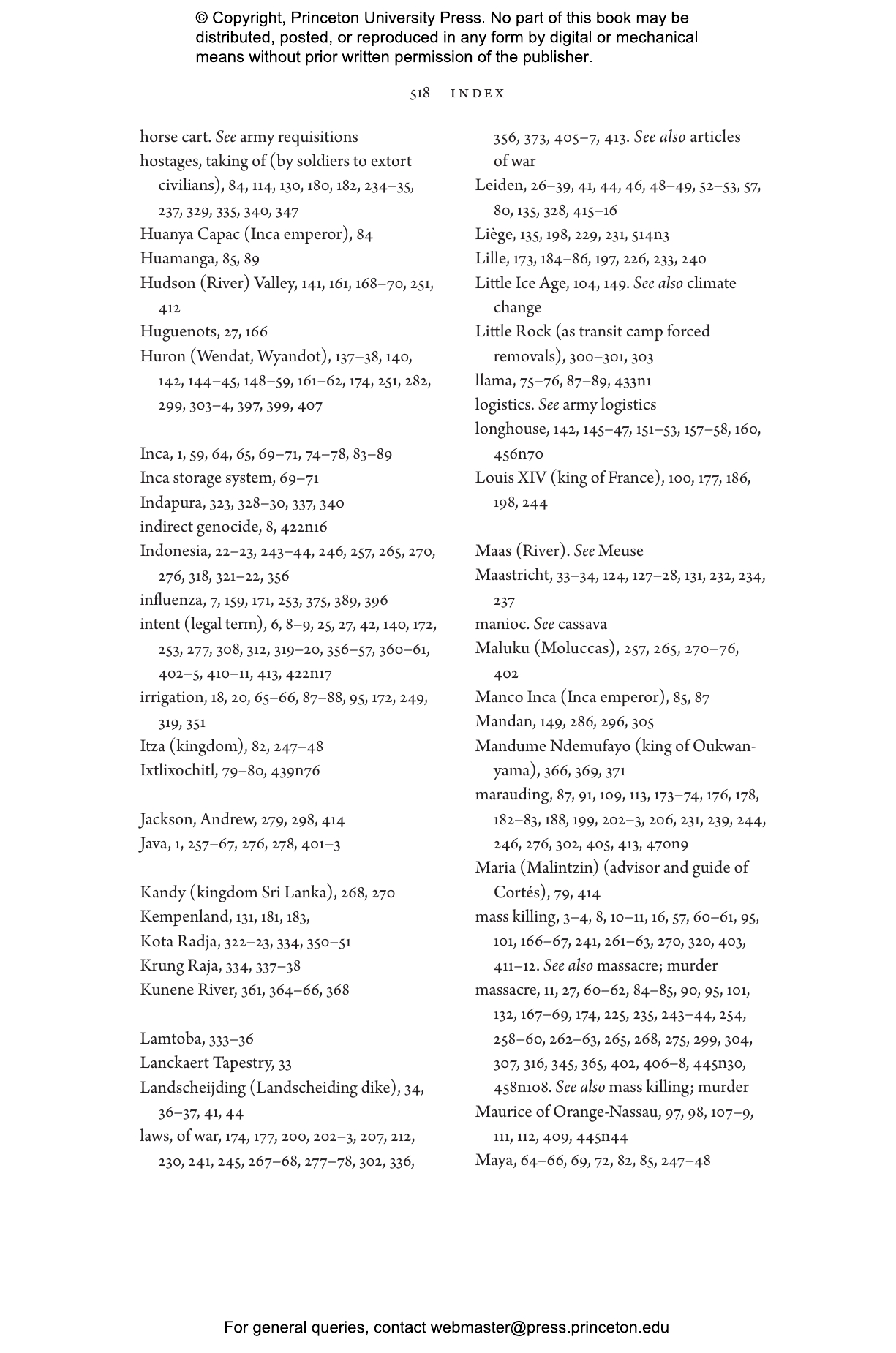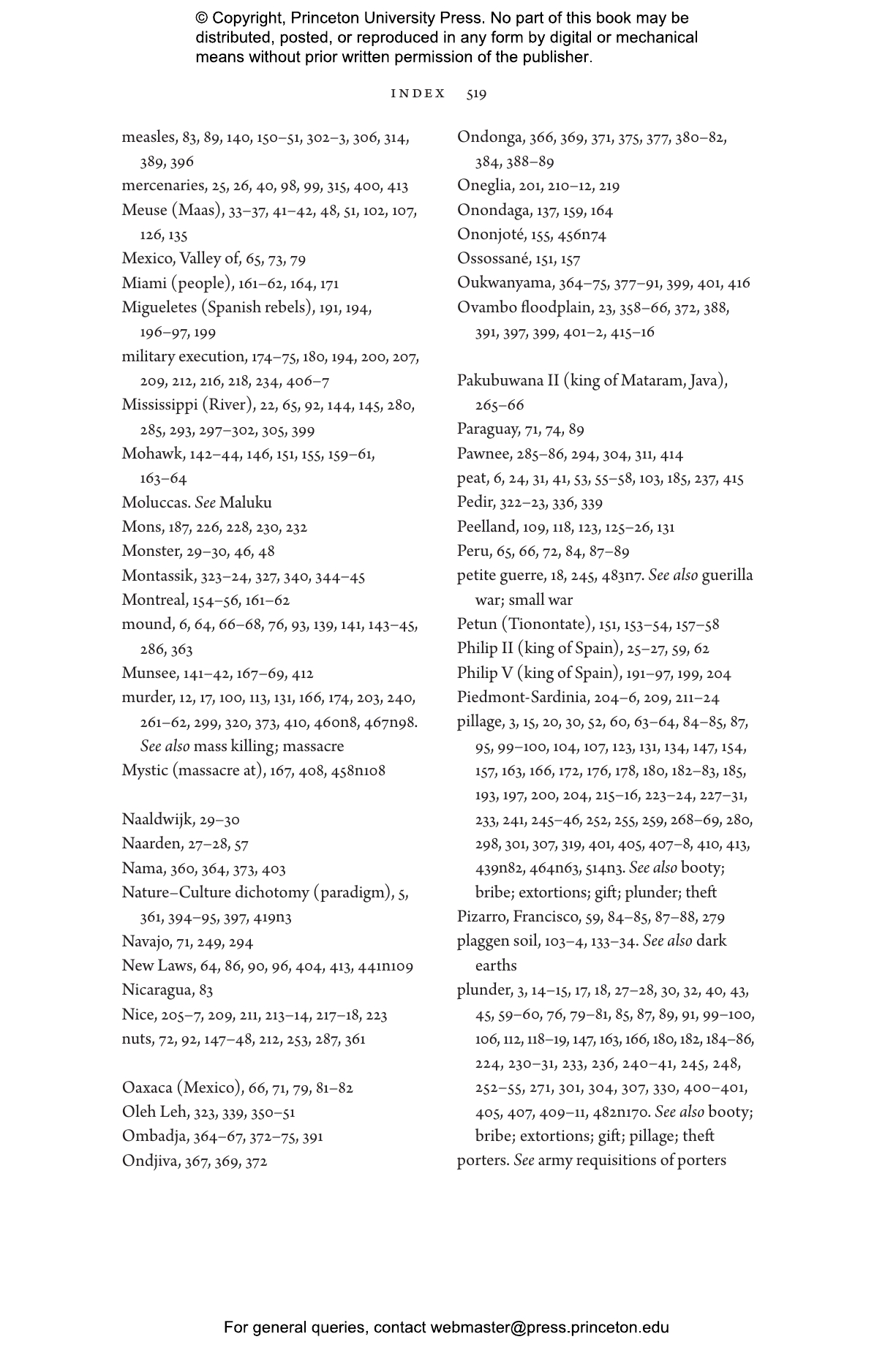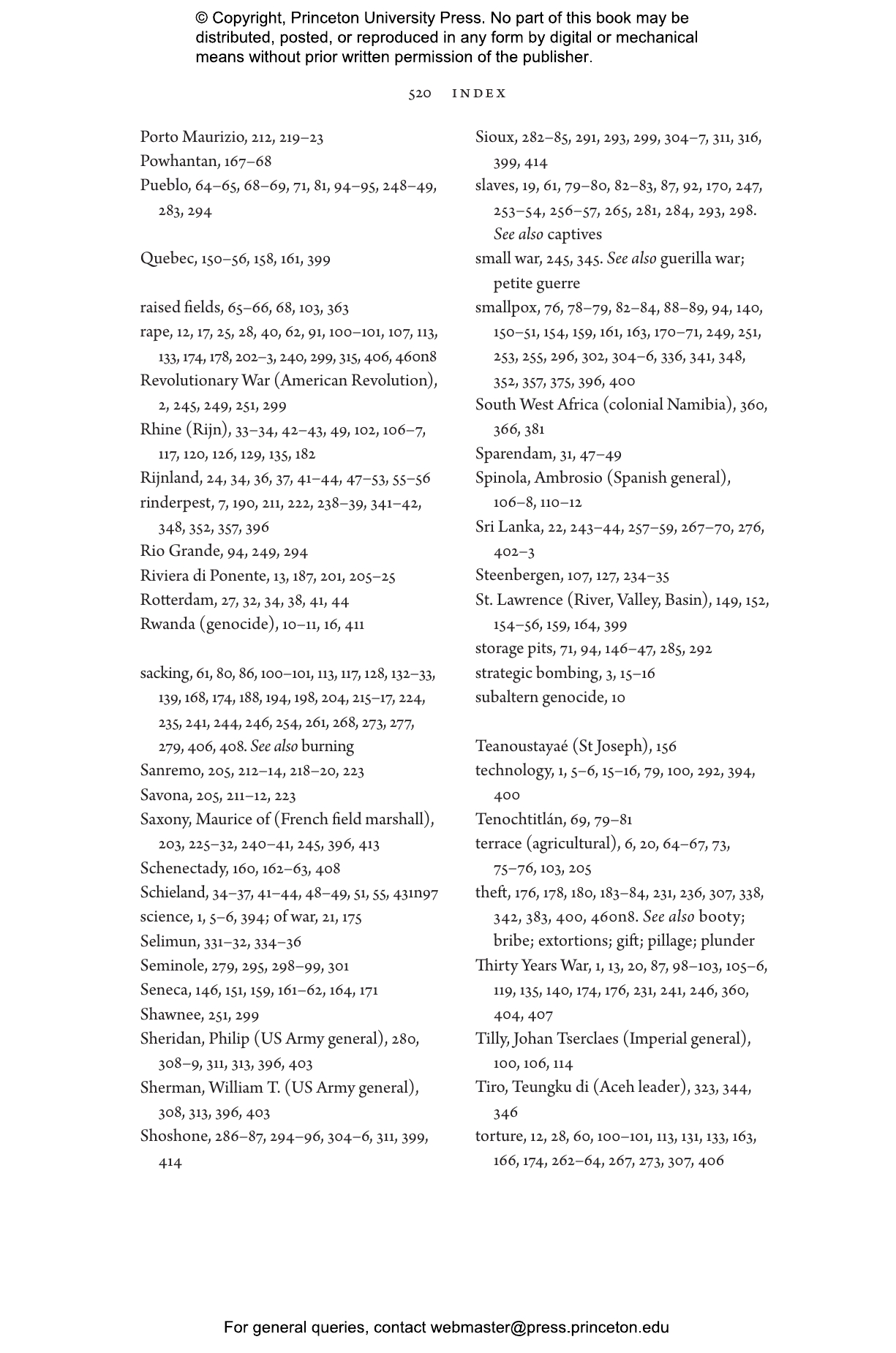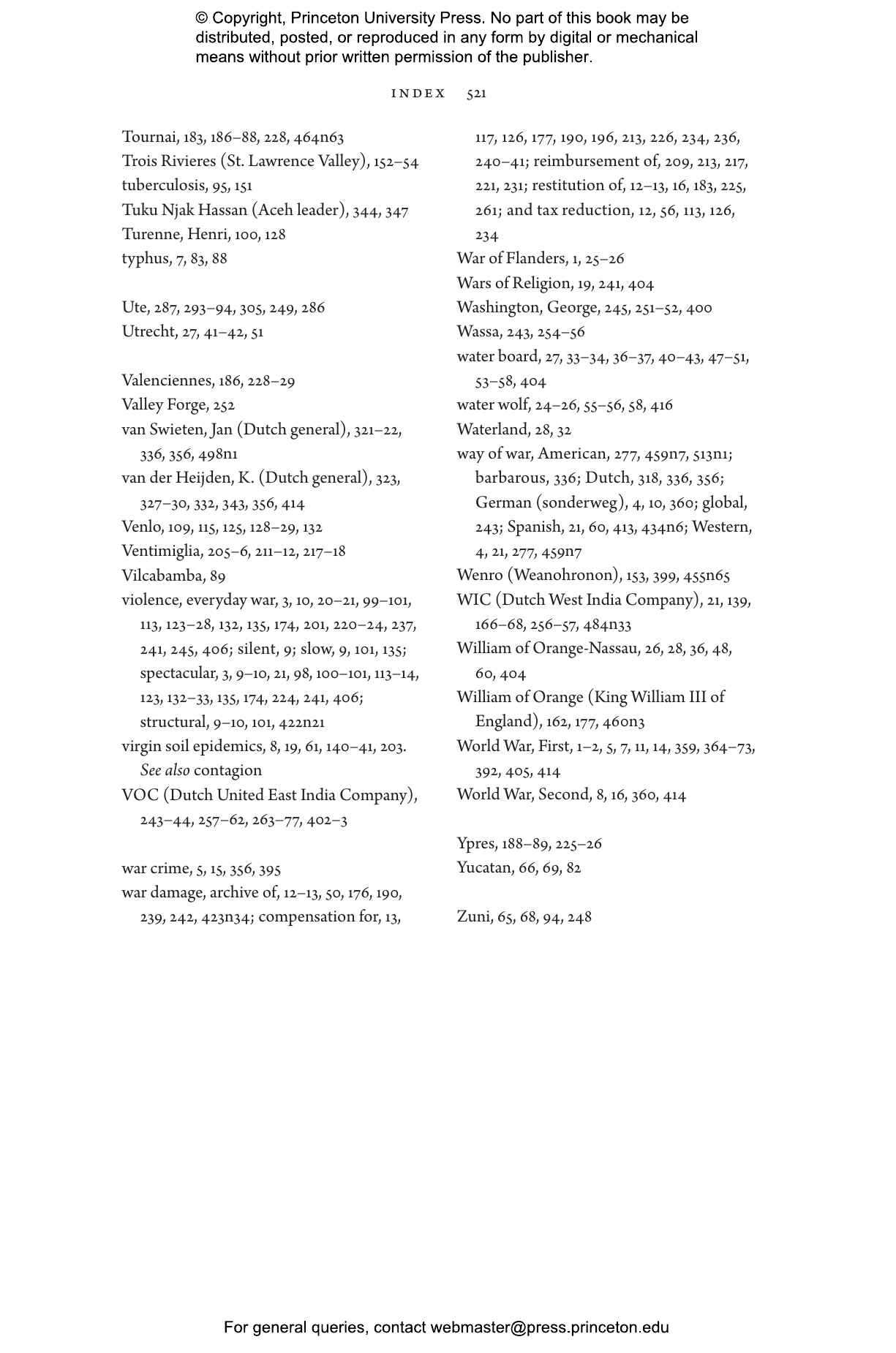The environmental infrastructure that sustains human societies has been a target and instrument of war for centuries, resulting in famine and disease, displaced populations, and the devastation of people’s livelihoods and ways of life. Scorched Earth traces the history of scorched earth, military inundations, and armies living off the land from the sixteenth to the twentieth century, arguing that the resulting deliberate destruction of the environment—”environcide”—constitutes total war and is a crime against humanity and nature.
In this sweeping global history, Emmanuel Kreike shows how religious war in Europe transformed Holland into a desolate swamp where hunger and the black death ruled. He describes how Spanish conquistadores exploited the irrigation works and expansive agricultural terraces of the Aztecs and Incas, triggering a humanitarian crisis of catastrophic proportions. Kreike demonstrates how environmental warfare has continued unabated into the modern era. His panoramic narrative takes readers from the Thirty Years’ War to the wars of France’s Sun King, and from the Dutch colonial wars in North America and Indonesia to the early twentieth century colonial conquest of southwestern Africa.
Shedding light on the premodern origins and the lasting consequences of total war, Scorched Earth explains why ecocide and genocide are not separate phenomena, and why international law must recognize environmental warfare as a violation of human rights.
"[A] sweeping history. . . . Kreike offers a stark corrective and an implicit warning: Humanity is not distinct from nature, and assuming it is can have tragic outcomes. Climate change is one; pandemics are another. In this book, catastrophic warfare is a third. Waiting for the fourth horseman would seem unwise."—Tatiana Schlossberg, New York Times Book Review
"Waging war against the Earth is an old business, and this book provides ample—and dispiriting—evidence for it."—Kirkus Reviews
"Might this be the most important topic that most smart, very well educated people have never read a book on? [This] treatment is excellent and engaging."—Tyler Cowen, Marginal Revolution
"Overall then, Scorched Earth is a thoroughly researched academic book that sits at the intersection of military history and environmental history and especially delivers for readers of the former. A fascinating topic that is by no means light reading."—Leon Vlieger, Inquisitive Biologist
"[A] powerful statement of what people often fail to see amid the horrors of war."—Choice Reviews
"Kreike's analysis is novel, compelling, and provocative. Scorched Earth is a significant and important book that offers a major reframing of conventional assumptions about the nature of war and even nature itself."—Mark Levene, author of The Crisis of Genocide
"The culmination of decades of painstaking work, this book is a crowning achievement. Scorched Earth provides new insights into dozens of campaigns in European and colonial warfare, and will shape debate for years to come."—J. R. McNeill, author of Mosquito Empires: Ecology and War in the Greater Caribbean, 1620–1914
"Scorched Earth is an impressive, thought-provoking, and richly detailed book. Kreike offers a new analytical lens through which to study the consequences of total war on both the environment and human societies."—Geoffrey B. Robinson, author of The Killing Season: A History of the Indonesian Massacres, 1965–66
"Emmanuel Kreike has produced a sweeping synthesis of the history of war and environmental history grounded in a broad array of examples on both sides of the Atlantic. Scorched Earth illuminates the connections between environmental destruction, total war, and genocide that birthed the modern world and threaten still to destroy it."—Louis S. Warren, author of God’s Red Son: The Ghost Dance Religion and the Making of Modern America
"Wide-ranging and deeply researched, Scorched Earth traces the origins of genocidal colonial warfare in America, Africa, and Asia through a centuries-long European tradition of environmental destruction in pursuit of military victory."—Sam White, author of A Cold Welcome: The Little Ice Age and Europe's Encounter with North America
